The Bahamas: A World Contender
How first-class regulatory innovation can be crucial to a jurisdiction

Tokenization: The Future of Entrepreneurial Finance Fund Administration & The Impact of the Pandemic

The Bahamas: A World Contender
How first-class regulatory innovation can be crucial to a jurisdiction

Tokenization: The Future of Entrepreneurial Finance Fund Administration & The Impact of the Pandemic
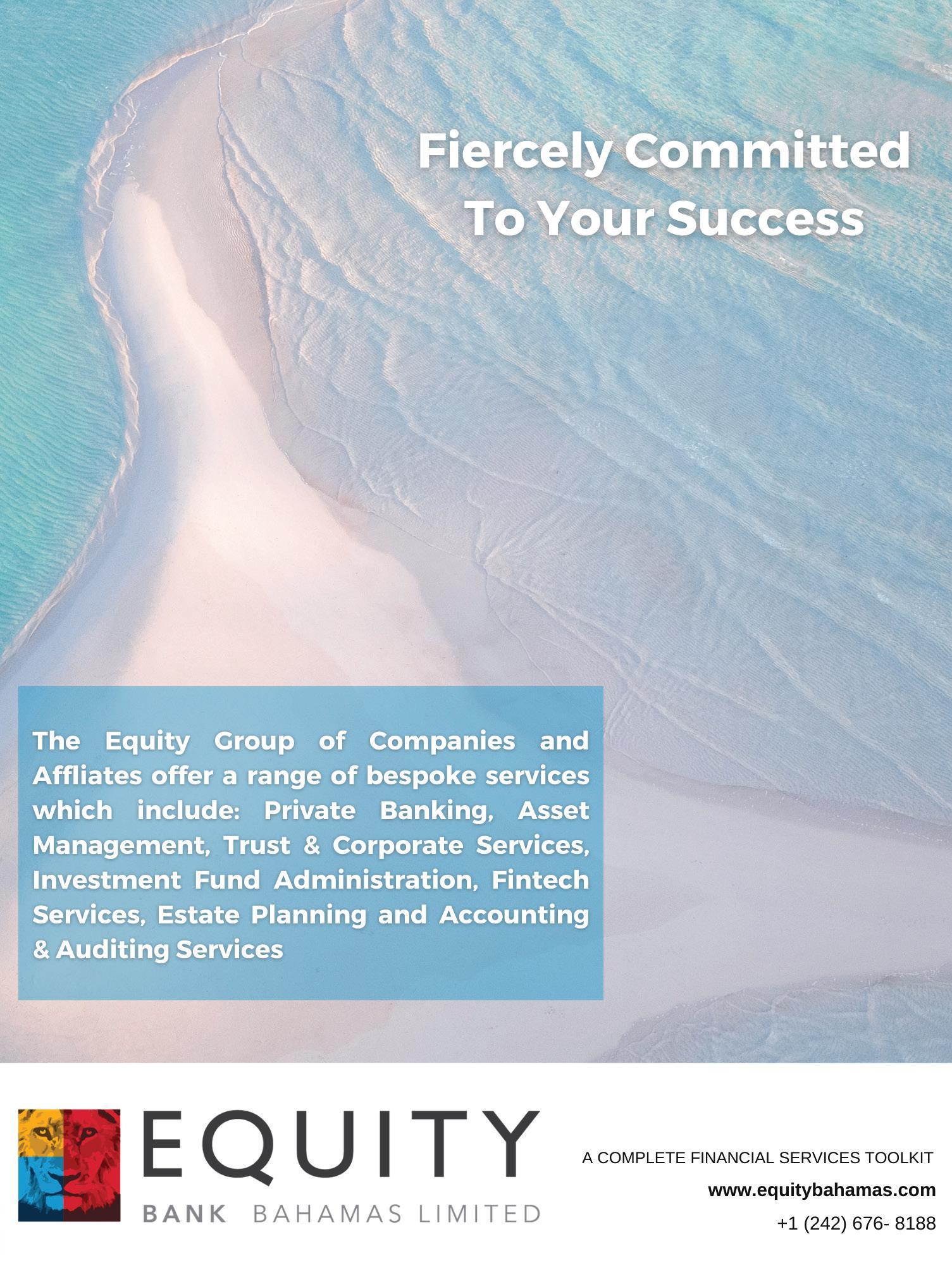
The Bahamas has always sought to provide superior financial products and services and a world class client experience in a well regulated environment. It has proven itself to be nimble and responsive to global changes – always mindful of the need to adhere to international standards.
This is complemented by the fact that the Bahamas is not only somewhere that offers bespoke private wealth management, but it is also a beautiful location to call home.






The Bahamas: A World Contender 02
Wendy Warren Partner, Founder & Managing Member Caystone Solutions
How first-class regulatory innovation can be crucial to a jurisdiction 08





Christina Rolle, Executive Director Securities Commission of The Bahamas
Achieving Technical Effectiveness at FATF Standards 14


Cassandra Nottage, National Identified Risk Framework Coordinator Office of the Attorney General Estate Planning: a Source of Certainty in Uncertain Times 15
Sharmon Ingraham, Partner, Higgs & Johnson
Currency Evolves in The Bahamas 22


Alexander M. B. Christie Partner & Associate at McKinney, Bancroft & Hughes
Vanessa M. R. Hall Partner & Associate at McKinney, Bancroft & Hughes
Fund Administration and The Impact of the Pandemic 27
Antoine Bastian Executive Chairman and CEO of Genesis Fund Services Limited
Tokenization: The Future of Entrepreneurial Finance 32 Dr. Iyandra Bryan, General Manager, Quantfury Trading Limited

















As we turn the page on the challenges of the past few years , we do so with the confidence that 2023 will continue to see The Bahamas move ahead in building on its reputation as a world-class financial centre. This confidence is based on the knowledge that whatever lies ahead we possess the expertise and innovative spirit to be responsive to the institutions and clients who look to The Bahamas for bespoke financial services solutions.


This issue of Gateway explores the many dimensions of the depth of offerings s and why The Bahamas is a world contender and the clear choice for international financial services. It explores how a commitment to balancing innovation with compliance to international standards underpins all that we do. Commentary on entrepreneurial finance and the evolution of digital currency are included in this issue as well as perspectives on investments and estate planning in today’s uncertain times and the impact of the pandemic on fund administration. And with our sights fixed on the LATAM region, we focus in on what’s ahead for Mexico in particular.
The pathway for international financial services will always be lined with new hurdles . With this issue of Gateway, we have presented how The Bahamas is fearlessly confronting these challenges to ensure that it remains the complete and compelling choice for financial services.
BFSB and its member firms would like to take this opportunity to thank its many business partners and colleagues globally for your continued support. You can be assured that we will work hard, relentlessly, and responsively to retain your support.
 By Wendy Warren
By Wendy Warren
By any standards international financial centres such as The Bahamas have faced unprecedented challenges over the past several years and in even in most recent months. The ongoing COVID-19 pandemic, recent economic turbulence and never-ending scrutiny by international bodies have intensified the business and competitive environment confronting global financial centres.
Yet despite these conditions and the associated pressures, The Bahamas continues to be among the world contenders for international financial services. This kind of resilience is a hallmark of the financial services sector in The Bahamas. No matter the state of the economy, no matter what changes are occurring in the financial services and regulatory landscape, The Bahamas has always maintained its status as a global leader by being able to adapt to the new normal.
Three factors contribute to The Bahamas hardened resilience and ability to compete successfully on the global stage: true to its roots and pedigree; adopting the highest standards for compliance, innovation and client centric responsiveness; and focusing and embracing developments emerging in the New Economy.

This trifold formula has been paramount in the Bahamas’ ability
to attract and welcome international families, capital and business to its shores. In fact, the demand for residences and talent that The Bahamas offers, which is being embraced by family offices and those seeking wealth management services, underscores why the Bahamas location, regulatory environment and forward looking legislation are gaining strength and acceptance as core compelling attributes of the jurisdiction.
The Bahamas is home to over 270 licensed banks and trust companies, including seven of the world’s top eight private banks and 35 of the top 100 global banks. These financial institutions deliver a range of services including private banking, trusts, fund administration, accounting, legal e-commerce, insurance, corporate and maritime services. North American banks have been doing business in The Bahamas for more than a century, and European and Swiss banks have deep roots established over more than 70 years. Financial institutions from other regions with growing economies are recognizing the advantages of operating in The Bahamas. Additionally, there is an excess of 800 funds that are licensed in The Bahamas and more than 60 fund administrators.
With an 80 plus year track record in financial services, few jurisdictions offer the wealth management experience that exists in The Bahamas. This heritage is the basis for the strong legal framework that has been cultivated for financial services, an investment climate that has been nurtured over the decades and a stable and predictable business environment anchored by the thousands of Bahamian professionals who work side by side with expatriate colleagues in the many hundreds of service providers that call The Bahamas their home.
There is a sound and proven infrastructure in place that has been built and modernized over the last 20 years. This has facilitated a highly competitive and market responsive financial service offerings and at the same time allowed The Bahamas to move forward in a very confident fashion into the new economy and the various elements of these new economies.
One of the key elements of the Bahamas infrastructure is a
very strong public-private partnership where communication is open and frank among all three participants that are involved with this agenda: government, regulator and private sector. This public-private partnership facilitates our engagement in creating and investing in our wealth management pedigree and areas of new economies such as digital assets, carbon credits, and ESG relevant solutions.
The Bahamas, as a financial center post 2000, had to become far more conscious of and proactive in reflecting global norms. As a result, our regulatory foundation has become strong. From a global connectivity perspective, we see this transition paying dividends today in light of what we endured in the past two decades. It has been a dynamic period in that we have had to be fearless in striking the right balance between being compliant and aggressive. If we perceive there is a need to tweak, we will tweak, but we will not stand still, we will always be responsive and reflect the needs of our clients and our partners.
Foundations are a prime example of this fearlessness. When The Bahamas made certain changes to facilitate the introduction of Foundations, we received significant pushback. Some people said, “Wait a minute - Foundations, are these not tools for inappropriate behavior?” But we were very confident that our regime was sufficiently strong to provide a robust, well-regulated environment in which foundations can be utilized in an appropriate manner. So, the perception of Foundations might have been negative elsewhere, but when we look some ten years later, other common law jurisdictions have followed suit.
While 2020 and 2021 have been unprecedented years for many industries, for local financial and corporate service providers in The Bahamas, this period brought in a host of new and amended regulations which carry the potential to transform the very landscape of the industry.
The Financial and Corporate Service Providers Act, 2020 enhances the legal and regulatory framework for those providing corporate and administrative services. Meanwhile, the new Banks and Trust Companies Regulations Act, 2020 consolidates and modernises the law regulating local banks
and trust companies to enhance governing powers for The Central Bank of The Bahamas. The introduction of the new Investment Funds Act, 2019 which further enhances the regulatory framework of Bahamas investment funds allows for the appointment of international fund administrators, and generally rationalises the responsibilities of all the key parties
From a level playing field perspective, within the past few years, The Bahamas has passed a compendium of legislation to meet international standards regarding economic substance, removal of preferential exemptions, and automatic exchange of tax information to meet the EU and OECD’s criteria on tax matters which resulted in the European Union removing The Bahamas from its list of uncooperative jurisdictions for tax purposes in March 2020. In addition, The Bahamas maintains the highest standards in the fight against money laundering, terrorist financing and other identified risks and therefore has been making significant strides in the fight against financial crime.
The anti-money laundering, counter financing of terrorism and counterproliferation legislative, regulatory and enforcement landscapes have been thoroughly reviewed and strengthened with The Bahamas being deemed compliant or largely compliant with 38 out of 40 standards established by the Financial Action Task Force.
The Office of The Bahamas Attorney General will be submitting a re-rating of the final 2 of the 40 Recommendations to the CFATF – one addressing Not for Profits, and another addressing the effective regulation and supervision/monitoring of virtual asset services providers, working with the Securities Commission of The Bahamas on the latter. The intent of these latest changes is to ensure compliance with all 40 of the FATF Recommendations.
All of these efforts aid in enhancing the risk profile of The Bahamas as an international financial centre, making it an attractive jurisdiction for financial services.
Despite the recent turmoil in the crypto market, The Bahamas remains bullish on the mid to long term prospects for digital assets. It was one of the first countries in the world to
introduce a digital currency in the form of the Bahamian Sand Dollar. And the recently introduced Digital Assets and Regulatory Exchange Act (DARE) was developed with the view of how we approach the wider picture. DARE is not a stand- alone single solution but rather the broad features of the jurisdiction such as private banking and funds coming together to recognize why it and a broader based Fintech capability is required. It is just the latest example of the strength and flexibility of the jurisdiction -- the weaving together of elements to create a financial services fabric that is durable and responsive.
The emergence of The Bahamas as a digital assets hub has resulted in companies such as FTX establishing their global headquarters in Nassau as well as a strong interest in Bahamian corporate vehicles to house the operations of digital asset businesses.
At the same time emerging developments in this space has meant The Bahamas, in being true to its market responsiveness DNA, is keeping pace with changes that are required to be a world contender as a hub for digital assets. The capital markets regulator --the Securities Commission of The Bahamas -- is spearheading a raft of initiatives to advance this transformation, including Amendments to the Digital Assets and Registered Exchanges Act (DARE) to address key developments since its promulgation.
The new Bahamian economy however is much more than digital asset leadership and companies being incorporated into the wide range of financial service providers in the country. The sector’s sustainability has implications for the broader economy. The diversity within the financial services sector in terms of product offerings contributes in a meaningful way to the livelihood of the Bahamian people and the country’s economy. This contribution will become more pronounced as the country pivots to invest in diversification with a focus on the “blue and orange” economies, which have been identified as pathways for greater economic expansion, new business opportunities and wealth creation for Bahamians and international investors alike.
The Bahamas is looking to modernise its fishing industry, generating ocean sciences and marine conservation opportunities while sustainably developing marine biotechnology, aquaculture, and deep-sea exploration initiatives. Renewable energy industries are also on the horizon. Meanwhile, as a vital component of the Bahamian economy, the tourism sector is looking to design a new tourism model which fully integrates culture and the creative industry in The Bahamas.
Both tourism and financial services are actively supporting these initiatives both domestically and internationally. This foreshadows deploying the linkages when the country’s traditional economic engines engage the country’s New Economy with benefits accruing to both.
Founder and Managing Member of Caystone Solutions (“Caystone”).
Prior to establishing Caystone in January 2012, Wendy served for 11 years as CEO and Executive Director of the Bahamas Financial Services Board (“BFSB”). BFSB works with The Bahamas government, regulators and private industry to ensure The Bahamas provides global clients with best in class financial services.
Beginning her professional career in 1988, Wendy has worked in a variety of roles in the fund administration, wealth management and audit fields. She has served on various boards and committees including Bahamasair Holdings, Bahamas Electricity Corporation, Bahamas Trade Commission, the Financial Services Consultative Forum and the Bahamas Association of Mutual Fund Administrators. Wendy is also a Chartered Accountant and holds a Bachelors Degree in Accounting from the University of Waterloo, Canada.

Governance Services including Directorship & Protectorship.
Oversight & Execution of Payments.
Settlement of Fund Subscriptions & Redemptions.
Tax Information Reporting/Reporting Officer Services.
Escrow Services.
Accounting Services for Investment Funds.
Investor Relations with Registrar and Transfer Agent Services.
Regulatory & Special Reporting. Audit Coordination.
Accounting Services for Investment Funds, Fiduciary Structures, Private Companies, Operating Entities & Audit Coordination.
Establish Companies, Foundations, Executive Entities & ICONs.
Full Administration & Registered Agent & Office Services.

Business Application Coordination. Residence & Work Permit Coordination.
Business & Residential Concierge Services. Bill Payments.
Establish Private Trust Companies. Registered Representative services.
Regulatory Application Coordination. Compliance Officer & MLRO Services.
Oversight of Ongoing Regulatory Compliance.
and logistical concerns, so they can focus on value generation & growth.
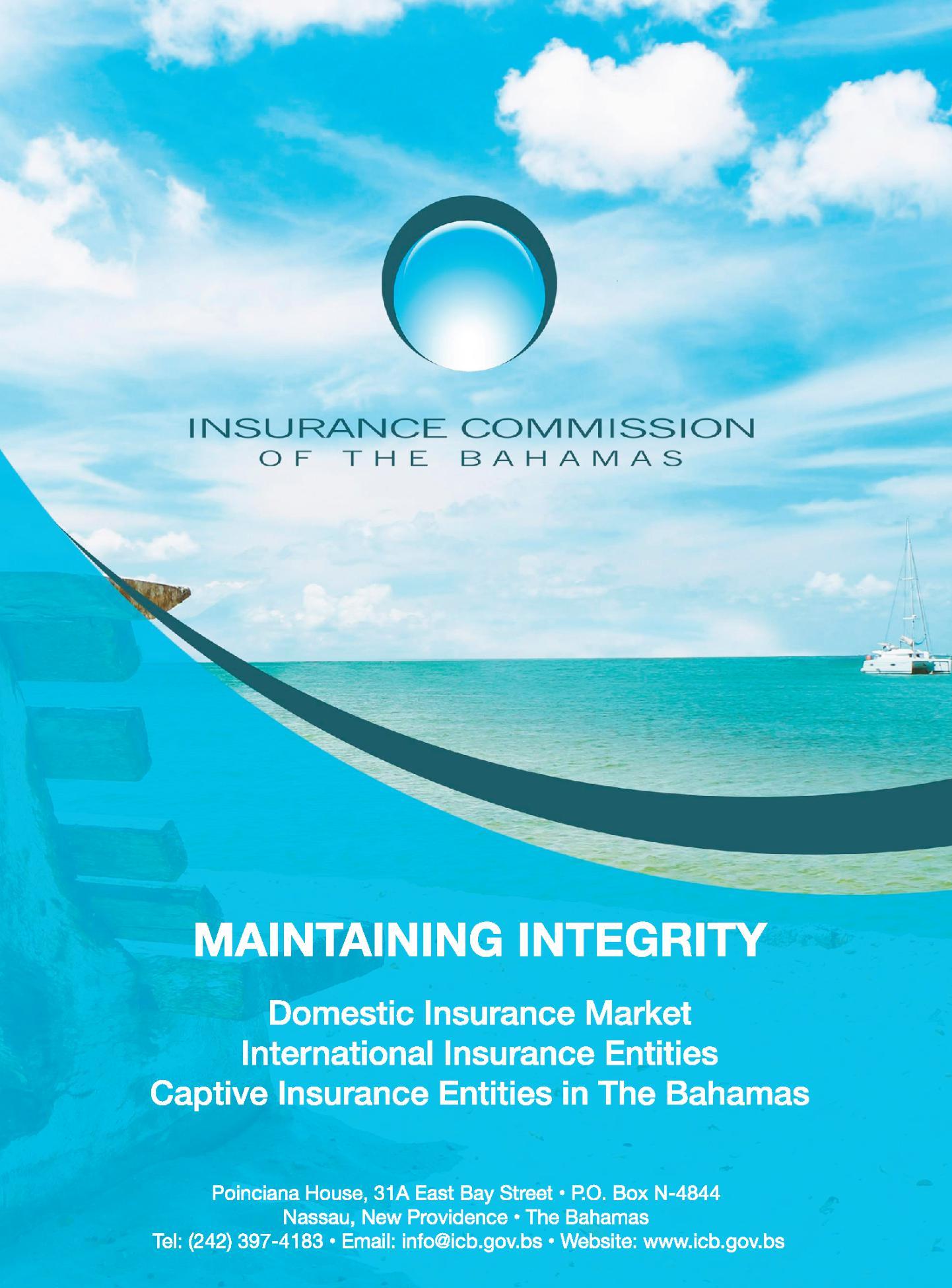



 By Christina R. Rolle
By Christina R. Rolle
The Bahamas is a swiftly evolving environment for securities and investments and the regulatory body in charge of the process has used its imagination to modernise the rules. Its watchword is pragmatism.
The Digital Assets and Registered Exchanges Act 2020 –otherwise known as the DARE Act – and the Investment Funds Act – or IFA 2019 – have gained international acclaim for their innovative, pragmatic responses to vexing regulatory concerns. Legislative initiatives are opportunities to solve problems but they are also opportunities to innovate. At the Securities Commission of The Bahamas (SCB), we are deeply committed to coping with regulatory risks pragmatically, taking the view that this will distinguish us from others.
Before 2019, by way of illustration, the legal framework that governed investment funds had not kept pace with international best practices and standards. It had supported The Bahamas’ wealth management industry at the start of the millennium, but a peer review that The Bahamas underwent as part of the International Monetary Funds’ Financial Sector Assessment Programme in 2012 found it to be deficient in several key areas. As for the digital
assets space, despite its growing importance to investors and wealth managers there was no body of law in place to provide much-sought-after legal and regulatory clarity. In both instances, the Commission found itself in a position to use its technical expertise to develop legislation and recommend same to the Government of The Bahamas. We looked at the needs of stakeholders, prioritised those needs and then came up with – and carried out – pragmatic, sustainable, best-in-class solutions.
The IFA 2019 dictates that an investment fund that carries on (or attempts to carry on) business in or from The Bahamas must be licensed as a Standard, Professional, or Specific Mandate Alternative Regulatory Test (SMART) fund. ‘Carrying on business’ in this context now applies to an investment fund that is incorporated in The Bahamas or offered for sale to non-accredited investors in The Bahamas. An investment fund is therefore required to be licensed based on the activity that it conducts or intends to conduct rather than on whether or not certain service providers to the fund are located or licensed in The Bahamas.
The previous investment fund legislation did not provide for the regulation of investment managers and placed burdensome responsibilities on investment fund




administrators for funds licensed in The Bahamas. This may have met the needs of the primary users of investment funds in the early 2000s – private banks and trust companies servicing their clients – but as the funds industry evolved, this misalignment of responsibilities became too onerous for administrators and did not address the lacuna of fiduciary duties which should be the responsibility of the investment manager.
Funds needed flexibility in selecting administrators and non-accredited investors expected to be able to deal with vetted and licensed investment managers. The IFA 2019 brought these things about by arranging for the licensing and supervision of investment managers.
A fund based in The Bahamas is no longer required to appoint an investment fund administrator in The Bahamas to provide its principal office. Investment fund administrators for Bahamian investment funds may be licensed under the Investment Funds Act, or licensed and operating in any prescribed jurisdiction anywhere in the world. This approach opens the door for international administrators to license funds under the Act.
The IFA obliges each fund to appoint an investment fund manager, except in some very specific circumstances. The investment manager must be licensed if the fund is being sold to non-accredited investors but the manager or fund need not be licensed if the fund is being sold to accredited investors only. Importantly, the fund may appoint an investment manager licensed or registered in a prescribed jurisdiction without the need for licensing in The Bahamas. In such a case, there is a simple registration process.
Each investment fund must appoint a custodian that must be independent of its administrator, manager and operator, unless the fund’s operators certify that the fund’s structure or the nature of its assets do not require the appointment
of a custodian. An investment fund’s operators are determined based on its legal structure. Operators are responsible for the operation of the fund in compliance with the IFA. The operator is subject to an assessment of its fitness and propriety and must be independent of the administrator, unless exempted from this requirement, or the fund is structured as an investment condominium.
Finally, the IFA 2019 is also compliant with the European Union’s Alternative Investment Fund Managers Directive, or AIFMD. This allows The Bahamas to qualify for ‘passporting’ in accordance with the Directive. The law grants a distinct licence to a manager that operates in the European Union or manages funds from the EU.
The IFA 2019 also addresses the EU’s standards for investment funds regarding the regulation of auditors. Every fund that does not submit to a full annual audit is required to receive a certificate every three years from a qualified accountant that states that its books are being maintained in line either with International Financial Reporting Standards or the United States’ Generally Accepted Accounting Practices. Auditors must be approved by the Commission if they want to act on behalf of regulated persons.
The SCB’s primary objective in developing the DARE Act was to bring regulatory certainty to the dynamic, fastpaced and evolving crypto-space. The Commission had already spotted the potential that the space represented for The Bahamas’ wealth management industry as the interest of investors in financial technology (fintech) and crypto-assets was increasing globally. The SCB fielded interest from international fintech operators that wanted
to operate in a well-regulated, compliant jurisdiction. The Government of The Bahamas had also made it clear that it intended to transform the jurisdiction into a regional fintech hub.
Given that the digital assets market or crypto-space is still in its infancy (or, in any event, far from mature), it was clear to the Commission that it needed to establish a legislative framework that was not overly prescriptive. The Act allows the jurisdiction to be nimble and able to react to new risk-related trends, or market development opportunities, as the evolving landscape demands.
To develop the legislation, the Commission first conducted a benchmarking exercise of 13 select jurisdictions, concentrating on their approaches to regulation and also on global standards and best practices in the business of digital and virtual assets. It reached out to other regulators with relevant experience and consulted the financial industry and other stakeholders.
The DARE Act came into effect on the 14 December 2020. It provided much-sought-after clarity and successfully established a Bahamian legal and regulatory regime for the registration of digital token exchanges and for the issuance of digital tokens through initial token offerings.
DARE defines salient terms such as digital asset business, digital assets service provider, digital token, non-fungible token, utility token and virtual currency token, among others. It intentionally does not set out to answer the question of whether a digital asset is a security or not. The Act defines various types of digital assets and is clear about what is in scope for regulation. It also recognises digital assets or crypto-currencies as members of their own asset class.
By giving the space its own regulatory regime, The Bahamas has removed the narrow question of whether a crypto-currency is a security and has, instead, provided
a framework whereby digital assets can be addressed holistically.
DARE’s approach to global anti-money-laundering standards and standards that counter the financing of terrorism and the proliferation of weapons of mass destruction (AML/CFT/PF) is vitally important. The Commission continues to concentrate on complying with the Financial Action Task Force’s Recommendation 15, along with its evolving interpretative notes. In keeping with R15’s principles, DARE subjects the digital assets business to the primary national AML/CFT/PF legislation of The Bahamas, which includes the Proceeds of Crime Act 2018, the Anti-Terrorism Act 2019 and the Financial Transactions Reporting Act 2018. In keeping with the FATF’s recommendations, DARE focuses AML/CFT/ PF supervision and oversight on the digital asset service provider rather than on the new technologies themselves.
The term ‘beneficial owner’ in DARE is assigned the same meaning as in The Bahamas’ Proceeds of Crime Act. DARE requires financial institutions to perform initial risk assessments prior to launch. The Act requires digital-asset businesses to have systems in place to prevent and detect money laundering, terrorist financing and suspicious transactions and report the reasons for their suspicion to relevant competent authorities. They must also comply with the Securities Commission’s rules, polices and guidelines that govern risk management and the prevention of money laundering and terrorist financing.
On 16 March 2022, the Commission published its AML/ CFT/PF Rules for DARE. These rules are based on the FATF’s Recommendation 15 and its interpretative notes.
They are supplementary to DARE and are also expected to evolve as the market evolves.
Pragmatism is a key consideration for The Bahamas in its approach to regulation and the jurisdiction continues to watch as trends indicate a move towards securities and other asset classes becoming tokenized. We are also mindful of recent emerging risks that came to the fore in the aftermath of the great bear market or “crypto-winter” of 2017-18. These risks must now be addressed in the regulatory framework and clear best practices must be established to protect investors.
If you know anything about The Bahamas, you know that we do not view our size as a handicap but as something that we can use to our advantage. The access that we, as regulators, have to industry players and regulatory addressees, policy makers and the consumers and investors whom we aim to protect, allows us to identify and act on urgent matters and to be innovative in providing pragmatic solutions to regulatory concerns.
Ms. Christina R. Rolle is the Executive Director of the Securities Commission of The Bahamas, having been appointed effective 26 January 2015.
Ms. Rolle has over 25 years of experience in the financial services industry. Prior to her appointment as Executive Director, Ms. Rolle has acted as Director and Deputy CEO for a prominent international private bank and held various senior managerial positions with local and other international institutions including Head of Trust and Fiduciary, Head of Risk, Compliance and Corporate Governance and Manager of Banking Services.
Ms. Rolle was a member of the FATCA advisory group for the Government of The Bahamas and has served on the Board of Directors of The Bahamas Financial Services Board (2009 – 2012) and the Society of Trust and Estate Practitioners (STEP), Bahamas branch (2003 – 2005).
In March 2020, Ms. Rolle was elected Vice Chair of the Inter American Regional Committee (IARC) of the International Organization of Securities Commissions (IOSCO), for a two-year term. As Vice Chair of IARC, Ms. Rolle is a member of the Board of Directors of IOSCO.
In April 2020, Ms. Rolle was appointed to The Bahamas’ Economic Recovery Committee by Prime Minster the Most Hon. Dr. Hubert Minnis, to make recommendations to the Cabinet on the long-term economic recovery of The Bahamas economy, including job-creation and stimulating small business recovery and development in response to COVID-19.
 Ms. Rolle holds an MBA from Kellogg School of Management, Northwestern University and is an alumni of Harvard Business School.
Christina R. Rolle Executive Director Securities Commission of The Bahamas
BAHAMAS GATEWAY
Ms. Rolle holds an MBA from Kellogg School of Management, Northwestern University and is an alumni of Harvard Business School.
Christina R. Rolle Executive Director Securities Commission of The Bahamas
BAHAMAS GATEWAY
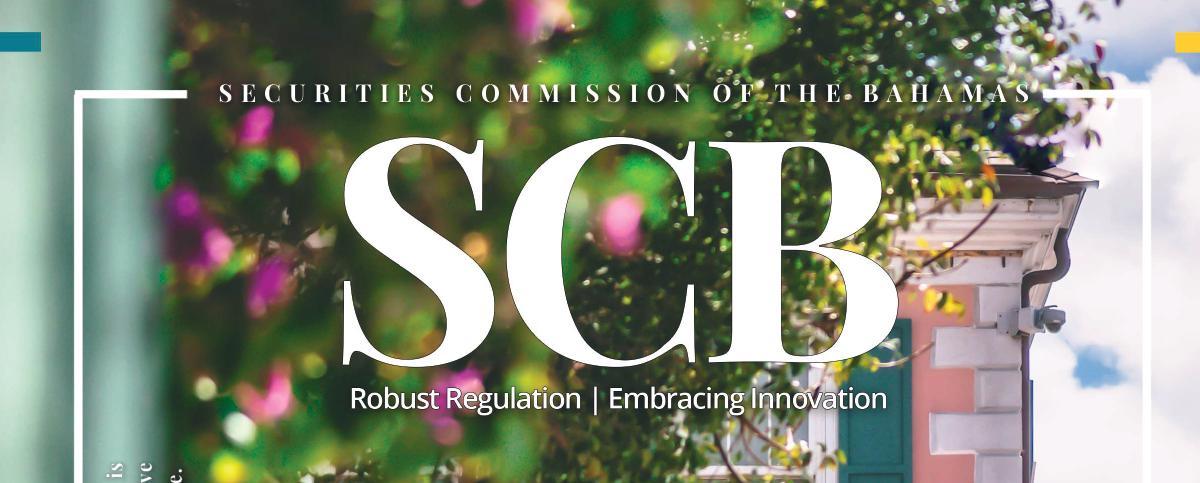

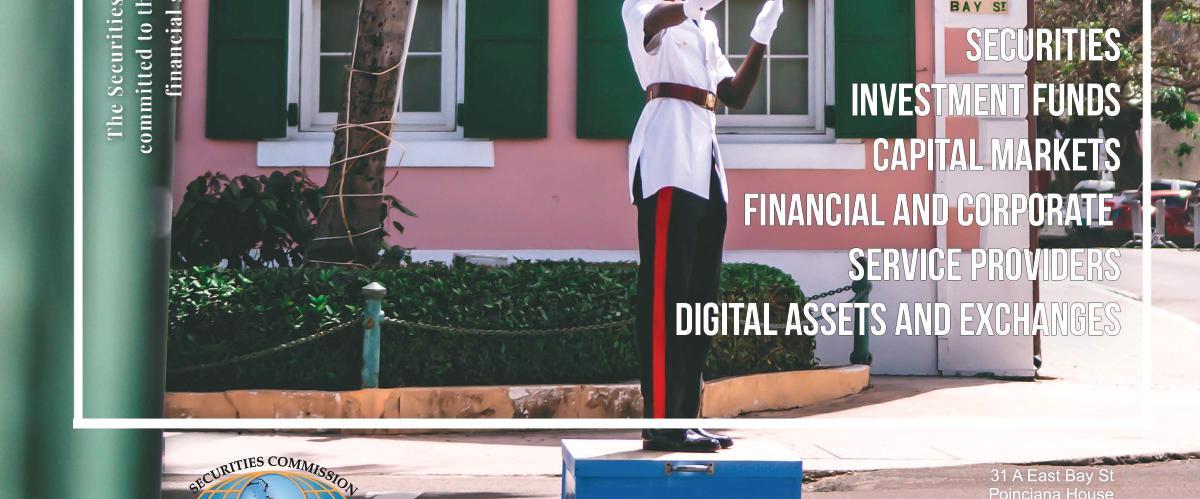
In December 2015, The Caribbean Financial Action Task Force (CFATF) conducted a mutual evaluation of The Bahamas’ technical and effectiveness compliance with the Financial Action Task Force (FATF) 40 Recommendations. The MER of The Bahamas was published in July 2017. The Bahamas was rated as “Compliant or Largely Compliant” with 18 FATF Recommendations, “Partially Compliant” with 21 FATF Recommendations and “Non-Compliant” with 1 FATF Recommendation. Accordingly, the country satisfied the criteria for being placed into the ‘CFATF Enhanced Followup Process’ and the ‘FATF International Cooperation Review Group Process’.
Over the last five years, there have been tremendous efforts made to address all concerns of the CFATF and the FATF regarding The Bahamas’ anti-money laundering, counter financing of terrorism and counter proliferation (AML/CFT/ CFP) framework. Accordingly, the legislative, regulatory and enforcement landscapes have been thoroughly reviewed and strengthened. The Bahamas’ commitment to maintaining highest level of best practices and standards in AML/CFT/ CFP is an ongoing focus.
 By Cassandra Nottage
By Cassandra Nottage
Within 10 months after the publication of its CFATF MER in July 2017, The Bahamas had readied itself for re-rating of technical compliance with the FATF Recommendations, through remediation of the most pressing issues and deficiencies identified by the CFATF. Based on the incredible amount of work completed by the members of the Identified Risk Framework Steering Committee, The Bahamas applied to CFATF for a re-rating of its technical compliance with 21 FATF Recommendations in May 2018. The Bahamas, at the CFATF November 2018 Plenary and meetings, was successful in obtaining 13 upgraded ratings of ‘Compliant or Largely Compliant’ in 12 FATF Recommendations and a ‘Partially Compliant’ for the 1 ‘Non-Compliant’ Recommendation of the 2017 Mutual Evaluation. The country became the first CFATF Member country to achieve such a feat in such a short period of time with The Bahamas achieving an overall position of Compliant and Largely Compliant ratings in 30 of the 40 FATF Recommendations and 10 Partially Compliant ratings – placing the country firmly on par with the top FATF member states (i.e., USA, Switzerland, Ireland, etc.).
Not willing to rest on our laurels, during 2019 and into 2020, at the height of the COVID19 pandemic, the government with the regulatory and law enforcement agencies continued to work on dual tracks addressing the FATF agreed Action Plan for the removal of the country from the FATF Grey List and the technical gaps regarding the remaining 10 FATF Recommendations. In February 2020, following the country’s submission of its fourth progress report with supporting documentation in December 2019 to the FATF ICRG for desktop review, the FATF deemed that The Bahamas had made sustainable progress towards addressing the ‘Action Plan’ items and approved an onsite visit review to the country to verify the actions taken. The agreed date for the onsite review was the week of the 28th of April 2020. The visit, however, was rescheduled for November 2020 due to COVID19 restrictions. The onsite review was successful with over 100 persons being involved in the discussions or preparation of same.
The Bahamas, while preparing to receive the FATF onsite team, was working on its re-rating application to CFATF. Accordingly, in May 2020 the country was able to make such an application for the re-rating of the FATF 10 Recommendations. In November 2020 at the CFATF Plenary, the country was successful in obtaining re-ratings of compliant and largely compliant scores in 9 of the 10 Recommendations. However, due to FATF revisions to Recommendation 15 (the addition of requirements for Virtual Assets), the country was downgraded in its compliance from largely compliant to partially compliant for this recommendation. Overall, The Bahamas achieved the second-best record of 38 compliant and largely compliant scores amongst the CFATF membership. Partially compliant ratings were recorded for Recommendations 8 (NPOs) and 15 (New Technologies inclusive of VASPs).
To end the year off with a bang, in December 2020, the FATF delisted the country from its Grey List. The added freed resources released from focus on the FATF Greylisting, allowed for the government to concentrate on a more aggressive push for the delisting from the EU AML Blacklist which the country had been placed on in October 2020. The Bahamas had been considered for this Blacklisting due to its
placement on the FATF Grey-list. While the IRF Steering Committee members worked tirelessly on completing the remediation of the last remaining technical deficiencies for FATF Recommendations 8 & 15, the Office of the Attorney General’s team (Attorney General, National Identified Risk Framework Coordinator and the International Cooperation Legal Unit) focused on engagement with the EU with countless zoom meetings and discussions with EU membership and EU DG FISMA (EU committee responsible for evaluating the AML/CFT/CFP regimes) on Bahamas’ evaluation report and international cooperation. The intense engagement with EU partners and DG FISMA led to the country being delisted on the 7 January 2022 from the EU AML Blacklist. Significant manpower and resources were expended to address the CFATF, FATF and EU identified deficiencies in our AML/ CFT/CFP regime.
Our remaining focus for the 2021 /2022 years has been to complete the work required to apply for the re-rating of the FATF Recommendation 8 and 15 and the National AML/ CFT/CFP Risk Assessment. We have applied in May 2022 to CFATF for the re-rating of the two Recommendations and is about 90% completed with the National Risk Assessment with an expected completion date of November 2022. We are now awaiting the outcome of the CFATF re-rating application, and we are hopeful we will obtain re-rating scores of Compliant or Largely Compliant for the FATF Recommendations 8 and 15. Should we be awarded such ratings, The Bahamas will become one of two jurisdictions in CFATF and one of six jurisdictions in the FATF Global Network to achieve 40 out of 40 Compliant and /or Largely Compliant technical ratings for the FATF 40 Recommendations.
We will continue to lean forward in our efforts to stay abreast of international standards and best practices. Further, we pledge to work closely with our industry partners forging a path ahead for the country’s second economic pillar – Financial Services. It has been a long five years to get to this point. Hard work, perspiration, persistence and consistent efforts by government, regulatory and law enforcement agencies and private industry stakeholders have made this successful story possible.
Dr. Cassandra Nottage was appointed to the post of the National Identified Risk Framework Coordinator (NIRFC) effective August 14, 2018. Dr. Nottage has over 40 years of experience in Anti-Money Laundering/Countering the Financing of Terrorism and Proliferation.
Dr. Nottage held the post of Manager of Bank Supervision at The Central Bank of The Bahamas for 12 years (2002 - 2014) with a total tenure of 36 years with the institution. Post departure from the Central Bank, Dr. Nottage commenced a financial sector and regulatory consulting business. It is through this consulting business that Dr. Nottage would be recruited to assist the Office of The Attorney General with its AML/CFT/ CFP mandate and progressed to the posting as the NIRFC.
Dr. Cassandra Nottage is a decorated Anti-Money Laundering/Countering the Financing of Terrorism Veteran. An avid scholar, Dr. Nottage took up the challenge to pursue a Doctorate’s Degree in Business Administration (with a concentration in International Business), days after retiring from the Central Bank, with Walden University after a 31 year hiatus from Academia.
Dr. Nottage successfully attained a Doctorate Degree from Walden University on October 28, 2018 and celebrated this milestone event on January 19, 2019 at formal graduation exercises. Dr. Nottage’ studies centred on the Bahamian financial sector – “Compliance Strategies to reduce the risks of Money Laundering and Terrorist Financing”.
Dr. Nottage has held prominent positions on the Central Bank’s Policy Advisory, Monetary Policy, Regulatory Decisions and Financial Stability Committees. She is a past Director of the Bahamas’ Deposit Insurance Corporation, Caribbean Financial Action Task Force Financial Expert, Caribbean Director on the governing Board of the Association of Banks of The Americas, twice past Chair of the Caribbean Group of Banking Supervisors and an Associate of the Toronto Leadership Centre.
Dr. Nottage has been a guest lecturer with the Bahamas Compliance Association and Bahamas Institute of Financial Services for 19 years lecturing in the ICA Anti-Money Laundering and Compliance Diploma Programmes and the Banking Certificates programme.
Dr. Nottage, while at the Central Bank travelled widely representing her country at international and regional conferences and seminars where at times she was a presenter on topical issues of banking supervision and anti-money laundering issues.

Legal Advice & Service from a Team you can Trust.
Operating from one of the world’s leading offshore international financial centres, HIGGS & JOHNSON offers sound legal counsel and business insight to discerning clients around the globe.



When a high-net-worth individual becomes incapacitated, her indisposition can interrupt the smooth management of her resources and can even cause discord between members of her family. Good estate planning – at which Bahamian lawyers and financial coaches are adept – can anticipate these problems, usually through the creation of a will, an enduring power of attorney and/or a health care and personal care declaration.
These documents – which can be used in combination with each other – enforce the wishes and directions of the person in question during any period of incapacity, whether physical or mental. The individual, known in some cases as the donor, might be unable to communicate with people because she has had a stroke or an accident or because medical treatment has incapacitated her. She may be in ‘lockdown’ at a time when her business requires hands-on management. One of her offspring might have been trying to convince her to fund a business venture before her debilitating accident occurred, but other relatives might be trying to prevent this from happening now that the accident has happened. Her relatives, alternatively, might be vying to control her resources in the absence of any clear legal arrangements to cope with her incapacity. It is also likely that she will eventually grow old and cease to be able to decide where she ought to live, who should look after her and who should take charge of her business. The purpose of the documents is to forestall these problems by enforcing written decisions that the donor made before her incapacity.
The pandemic has brought much uncertainty into wealthy people’s lives. They are not able to predict its future course but they can, at least, plan for the future of their wealth and (in the event of incapacity) of their everyday lives. They are more anxious to do so now than they were before the outbreak. Many have made it a priority to organise their affairs, taking steps to have their wishes documented and ready to be effected if necessary. Many people consider wills to be the only documents that they need to help them organise their estates.
Although the creation of a will is a prudent step, it is effective only between the date of death and the moment when the estate is wound up. To make sure that somebody is in charge of things when the high-net-worth individual is still alive but cannot express her wishes very well, she ought to tell her lawyers to prepare other documents while she is still capable. They should pay special attention to the creation of powers of attorney, enduring powers of attorney and health care and personal welfare declarations. These are all parts of proper estate planning.
The law of agency comes into play when someone engages someone else to act on her behalf. The ancient power of attorney is founded in this sector of the law. It gives a person appointed by its terms the authority to deal with the financial and business affairs of another. The donor in question may –or may not – give this power to a relative. She might grant it to that person generally or she might limit it to a specific transaction or time frame. This traditional power of attorney, in its original format and usage, is terminated by any period during which the donor is mentally incapacitated – perhaps if she suffers from a mental disorder, dementia or Alzheimer’s disease. There is, however, a more recent version of the power in British and Bahamian law.
An enduring power of attorney, created by the Powers of Attorney Act, Chapter 81, Statute Law of The Bahamas, makes it possible for a power of attorney to remain in existence and valid after a person has become mentally incapacitated. The use of powers of attorney and enduring powers of attorney permits the financial and business affairs of the donor to continue uninterrupted during periods of absence, confinement, quarantine or incapability and enables the donee to act on her behalf.
A health care or personal welfare declaration enables the donor to convey her wishes and desires regarding medical treatment, the extent of any medical intervention and her personal care. In relation to periods of confinement, quarantine or inability, whether as a result of health concerns, restricted movement or otherwise, these additional documents can ensure that the plans and aspirations of the donor are discerned and fulfilled.
Section 4 Powers of Attorney Act, which introduced enduring powers of attorney into the law of The Bahamas, provides:
“(1) The authority of a donee given by an instrument creating a power of attorney that –
•provides that the authority is to continue notwithstanding any mental incapacity of the donor; and
• is signed by the donor and a witness to the signature of the donor, other than the donee or the spouse of the donee, is not terminated by reason only of the subsequent mental incapacity of the donor that would but for this Act terminate the authority.”
The Powers of Attorney Rules, established in accordance with the Act, go into more detail. The instrument must be drawn up in a certain way. Both the person who appoints someone to deal with her financial and business affairs and the person(s) she is appointing must sign it. It must then be lodged at the Supreme Court Registry. From then on, subject to any restrictions in the document, the appointed person(s) may use it and rely on it.
If, however, someone has to make decisions about health care and personal care, a power of attorney or an enduring power of attorney cannot apply. The scope of the authority derived from an enduring power of attorney is limited to property, business and financial matters. If it is desirable to convey wishes or instructions for medical or healthcare decisions or other personal matters, these ought to be set out in a statement that declares the person’s directions.
Many people consider it unthinkable and/or inhumane to be placed on machines or given other methods of treatment to sustain bodily functions when there is no detectable brain function, while other people want every medical resource to be available to sustain life for as long as possible. A health care and personal welfare statement
or declaration can help members of a family determine their loved one’s position with regard to such treatment.
In some jurisdictions, such documents are termed ‘living wills’ or ‘advanced directives’ and are supported by legislation enacted for that purpose. There is, as yet, no Act in The Bahamas that mentions or permits the creation of such instruments specifically, but a person can declare her wishes in accordance with the Oaths Act, Chapter 60, Statute law of The Bahamas with the aim of preventing uncertainty and conflict from plaguing her family after she becomes vulnerable.
In creating a health care declaration, one may derive guidance from the decisions of the courts of the United Kingdom. When considering the issuance of such instruments regarding medical treatment, Lord Donaldson of the English Court of Appeal held, in Re T (Adult: Refusal of Treatment) [1993] Fam 95, that:
“An adult patient who, like Miss T, suffers from no mental incapacity, has an absolute right to choose whether to consent to medical treatment, to refuse it or to choose one rather than another of the treatments being offered...This right of choice is not limited to decisions which others might regard as sensible. It exists notwithstanding that the reasons for making the choice are rational, irrational, unknown or even non-existent.”
In another English case, Re C (adult: refusal of medical treatment) [1994] 1 All ER 819, it was held that the court may exercise its inherent jurisdiction and rule, through an injunction or a declaration, that an individual is capable of refusing or consenting to medical treatment. This can include future medical treatment.
Finally, Mr Justice Munby stated in HE v A Hospital NHS Trust and another [2003] EWHC 1017 (Fam):
“I can summarise the law as follows:
These documents are all parts of proper estate planning
• There are no formal requirements for a valid advance directive. An advance directive need not be either in or evidenced in writing. An advance directive may be oral or in writing.
• There are no formal requirements for the revocation of an advanced directive.
• An advance directive is inherently revocable. Any condition in an advance directive purporting to make it irrevocable...and any provision in an advance directive purporting to impose formal or other conditions upon its revocation, is contrary to public policy and void.
• The existence and continuing validity and applicability of an advance directive is a question of fact. Whether an advance directive has been revoked or has for some other reason ceased to be operative is a question of fact.
• The burden of proof is on those who seek to establish the existence and continuing validity and applicability of an advance directive.
• Where life is at stake, the evidence must be scrutinised with especial care. Clear and convincing proof is required.
• If there is doubt, that doubt falls to be resolved in favour of the preservation of life.”
This makes it clear that it is permissible for someone to make directions for medical and health care as well as for personal care. For certainty and ease of reference, the authorisation ought to be in writing. There is no reported Bahamian case law on the issue as yet, but the expression of a person’s wishes, instructions and directions for medical treatment at some time in the future when she cannot communicate instructions verbally can help members of her family and medical professionals draw up a treatment plan. If the declaration addresses personal care, her wishes regarding such matters as living arrangements (whether to receive care at home or go to a residential institution) will help her family avoid conflict about “where grandma should live.”
Good estate planning can offset problems that might arise when the donor is away from home for a long time. By creating a will, an enduring power of attorney and/or a health care and personal care declaration, she can ensure that her wishes and directions are clearly discerned and effected during any periods of incapacity, whether physical or mental. The existence of such essential estate-planning documents can also ward off conflict and discord in her family. They are a source of comfort and certainty in the midst of uncertain and unsettling times.
Sharmon Ingraham Partner, Higgs & JohnsonSharmon Y. Ingraham is a Partner and Deputy Chair of the Private Client and Wealth Management practice group at Higgs & Johnson. Her practice includes providing advice to trust companies on matters concerning trust administration and creation, pension trust creation and administration, estate administration, private client wealth management, wills and probate matters, company law and international commercial contracts. She also has experience in trust, commercial and maritime litigation, ship financing and registration matters, and banking and insurance regulatory matters. Sharmon has authored commentaries on various trust law topics including most recently: estate planning and administration, Foundations and Private Trust Companies in The Bahamas. Sharmon holds a dual honours degree in Law and International Politics from the University of Keele and qualified as a Barrister (non-practising) in England and Wales. She is a member of Middle Temple, the Bahamas Bar Association, STEP (Bahamas Chapter) and a member of the editorial committee for STEP.



All financial jurisdictions must evolve or die. The world is changing swiftly and it is almost essential for anyone who wants to keep up with the times to use digital currencies. Central banks around the world are experimenting with various forms of digital currency and The Bahamas is no exception.
The Bahamas is the first country to implement a government-backed, blockchain-based Central Bank Digital Currency. According to ConsenSys, the blockchain software technology company, a CBDC is “a digital form of central bank money, which is legal tender created and backed by a central bank that represents a claim against the central bank and not against a commercial bank or a Payment Service Provider.”
The innovative Central Bank of the Bahamas Act 2020 includes, among other things, “electronic money” in its definition of currency. A year after passing it, legislators went a step further and implemented the Bahamian Dollar Digital Currency [BDDC] Regulations 2021, which define the BDDC as an electronic version of the Bahamian dollar which the Central Bank issues in accordance with the Central Bank Act. It is fully backed by reserves that the Central Bank holds and it represents a direct claim against the Central Bank.
CALLOUT: The Bahamas is the first country to create a government-backed, blockchain-based CBDC
According to the BDDC Regulations, a Bahamian Dollar Digital Currency wallet is a digital wallet issued by a regulated wallet provider that holds BDDC and is registered under the Central Bank Act. The regulations set out a clear and detailed process by which a firm can apply to do this business. They also safeguard the currency in those wallets with conditions that wallet providers must satisfy before registering as wallet providers or before continuing to provide wallet-related services.
Each applicant must:
(i) have adequate software and hardware;
(ii) have taken adequate steps to safeguard the wallet holders’ funds;
(iii) have clear rules to help it resolve disputes about the provision of wallet services;
(iv) have a safe and reliable information technology system and “adequate interfaces to ensure interoperability, access and data protection, as well as robust contingency and disaster-recovery procedures"; and
(v) have effective arrangements in place for the protection of clients’ assets and monetary arrangements consistent with any prescribed rules or guidelines that the Central Bank might issue.
Registered wallet providers must also follow strict guidelines if they wish to remain registered. The Central Bank can suspend or cancel a wallet provider’s registration if it believes that the wallet provider, among other things:
(i) has not distributed BDDC within twelve months of the date on which its registration was approved;
(ii) has obtained approval for registration through false statements or some other irregular means;
(iii) has ceased to meet the criteria set out in the BDDC Regulations;
(iv) is contravening the regulations or breaking any other law of The Bahamas;
(v) is doing business in a manner which is detrimental to the public interest or to the interests of its wallet holders; and
(vi) is contravening any term or condition subject to which the Central Bank granted its registration.
Although only the Central Bank can issue BDDC, the need for wallet providers creates opportunities for investment in The Bahamas.
The Act empowers the Central Bank to issue any amount of BDDC that it sees fit, as long as it promotes and oversees a safe, sound and efficient national payment system. Nobody else may issue the currency of The Bahamas as electronic money in the jurisdiction.
The regulations empower the bank to promulgate such codes, rules, guidelines, policy statements and practice notes as it sees fit in order to set limits or restrictions on wallet balances and transaction values for different categories of wallet holders:
(a) in furtherance of its regulatory objectives;
(b) in relation to any matter relating to any of its functions under the regulations; and
(c) in relation to the operation of any provisions of the regulations.
Furthermore, the Central Bank may issue written directions, generally or specifically, to any wallet provider in any circumstance where it believes that:
(i) it is necessary or expedient for ensuring the integrity or proper management of BDDC and the technology platform;
(ii) it is necessary or expedient for the effective administration of the regulations;
(iii) it is of public interest;
(iv) a person is engaged in, or is about to engage in, an unsafe, unsound or unfair practice with respect to BDDC; or
(v) a person is likely to contravene or fail to comply with the regulations or any codes, rules, guidelines, policy statements and practice notes that have the force of law. These provisions make the regime responsive to a fastmaturing and evolving industry.
The recent Central Bank Act and the implementation of the BDDC Regulations lay the foundation for the Bahamian CBDC, the so-called Sand Dollar. This is the digital form of
the Bahamian dollar that the Central Bank of The Bahamas issues through authorized financial institutions. The user keeps the currency in his digital wallet by means of a mobile phone app or by using a physical card.
Ultimately, a CBDC such as the BDDC is an extension of paper money, also known as fiat currency. Fiat currency is legal tender issued by the Central Bank in the form of notes (sometimes called bills) and coins. The use of fiat currency is still the most popular method of payment. Some may argue that it is the most secure means of exchange and it is certainly the fastest. A payment via credit and debits cards, while still considered a digital payment, is nonetheless an example of banks moving fiat currency about. It is not as secure as a fiat currency transaction, due to the threat of accounts linked to such cards being hacked or by a card being compromised, but it is certainly efficient.
Both physical fiat currency and digital fiat currency have their pros and cons and it appears that the objective of the CBDC is to merge those pros and cons. By doing so, it makes payments quick and secure.
Why are central banks going down this path? They have, traditionally, participated in two kinds of payment transaction – fiat currency and intermediary bank payments. Technology is progressing in both of those areas and has led to the implementation of other (decentralized) digital currencies. People sometimes argue that physical fiat currency is on its way out, but the Central Bank says that it has no plans to eliminate cash.
More and more central banks in emerging markets are thinking of setting up their own digital currencies, the better to include more people in the financial system and decrease the cost of handling cash. This school of thought is in line with the Sand Dollar’s objective, which is to “[a] chieve greater financial inclusion, cost-effectiveness, and provide greater access to financial services across all of The Bahamas.”
So why is this even remotely beneficial to Sand-Dollar holders? The Sand Dollar allows for a better payment process, a reduction in transaction costs and better security in the form of multi-factor authentication, wallet security and cyber-security assessment.
Kristilina Georgina, the managing director of the International Monetary Fund, has summed up the objective of CBDCs perfectly.
The Bahamas has taken a bold and innovative first leap into this new chapter, accomplishing something that no jurisdiction has done before. In doing so, the country has equipped itself well for the quickly-approaching brave new world of tomorrow.

Alexander provides unmatched expertise to help solve complex legal problems. He specializes in advising in financial services and commercial transactions and is particularly experienced with matters involving real estate and conveyancing, trusts, asset protection structures, banking, company law, and incorporation of corporate vehicles. Alexander also leads the firm’s Fintech Practice Group. Alexander is well-known for his ability in drafting commercial instruments and his creativity in constructing complex asset protection structures. Alexander is an advocate of constant networking and attentiveness to the needs of his clients, something that has helped him maintain client relationships globally and foster his reputation as a reliable legal professional.
Vanessa is an associate of McKinney Bancroft & Hughes whose areas of expertise include real estate transactions and conveyancing, corporate transactions, financial services and private client wealth management. Vanessa is also a part of the firm’s Fintech practice group. Vanessa is passionate and driven, and believes in upholding the integrity of the profession. She possesses excellent problem-solving skills and her clients admire the way in which she always makes herself accessible to them. Vanessa also prides herself on working on areas of the law that are unchartered. Outside of the law, Vanessa is passionate about cooking and baking plant based cuisine and she also enjoys community service, laughing with friends, and spending time with her family

“The history of money is entering a new chapter. Countries are seeking to preserve key aspects of their traditional monetary and financial systems, while experimenting with new digital forms of money.”


The Coronavirus has caused immense disruption to business throughout the financial services industry, both in The Bahamas and abroad. Some fund administrators, however, have taken it in their stride. This is the story of one business that benefited from early updates to its practices in ways that it could not envisage before the virus struck.

During the past two years of this COVID pandemic, all business operations have had to deal with change on a large scale. Even the world of fund administration has changed and, at Genesis Fund Services, these changes have affected not only what we do but also the way we do it.
Before the pandemic, we all tended to view change as inevitable. However, the general pace of change in our industry was moderate until COVID arrived. That pace then
accelerated enormously and catapulted us into an uncertain future. Change occurred more quickly than we might have liked or expected, but undoubtedly it has been for the better.
We now seem to be emerging from the worst of the pandemic and entering a new era. This is a 'new normal' for clients, for employees, for fund investors, for fund managers and for the jurisdiction. Technology, talent management and digitisation lie at the heart of this new normality.
At Genesis, we took the fortuitous decision in early 2018 to
create a paperless office. We did not have a crystal ball to help us foresee the events of 2020/21, which included the sudden and unfortunate COVID-19 lock-down mandate. We did, however, see that digital technology was evolving and pushing our processes – and the industry as a whole –towards more digitisation. We had to satisfy the demands of our clients and fund investors (especially institutional investors) for more advanced technological reporting, communication and management of their business data.
Fund administration’s age-old reliance on manual processes and high volumes of paper was near death. Fortunately, before the pandemic struck, we reduced our paper processes and all remaining manual processes dramatically. COVID simply hastened and obliterated any vestiges of paper processes that were left because manual applications simply could not happen when everybody was working from home. The fund administration industry, and we here at Genesis, therefore adapted to the 'new normal' of paperless processing. We did this with subscriptions, redemptions, accounting and, most importantly, the review and collection of 'due diligence' data.
Without the advent of COVID, we would simply not have collected, vetted and processed 'due diligence' information from home as soon as we did. Before COVID, Genesis would never have permitted its employees, even its most capable and trusted employees, to have taken customers' passports, bank details and other information into their homes because of the need for privacy and accountability.
However, to continue operations effectively and to satisfy regulatory responsibility while keeping up best practices, we had to work quickly to improve and monitor our cybersecurity data-protection – fund administration’s newest cost centre. We had never anticipated a time when 100% of the workforce had to work at home and the firm therefore had to take on the unbudgeted costs of buying everyone a new laptop, a second screen and an updated wifi device to speed up their work.
The advent of intense training in cyber-security and updates to controls that safeguard clients' information have led to major improvements and benefits at financial service providers. Now, employees who are not in the compliance
department have to discharge responsibilities for 'due diligence' when they are at home and must be conscious of the need to safeguard clients’ information and mitigate the risks involved in that work. This they now do very well.
The use of two- and three-factor authentication has become the norm. Firms are far more aware of their duty to safeguard clients' data and have overwhelmingly improved the ways in which they mitigate risks that pertain to individuals during the pandemic. Videos, memos and virtual meetings regarding privacy and risk have increased tenfold...or at least, it feels like tenfold!
At Genesis, we have observed that COVID has made all staff more conscious of the risks that cyber-maladies pose. It has also made them realise that it is their regulatory – and laborious – duty to safeguard clients' data.
Many fund administration staff have worked arduously and conscientiously at home. Buckling under the stress of working all hours in a domestic setting, logging on in the middle of the night and answering emails at ungodly hours, they want to take some time off and not be overwhelmed by their new virtual world. In short, they need help and the senior management team has to make it available to them. Because of this, the issue of everyone's work/life balance has become a key issue at every meeting with the senior management team.
During the past two years of dreadful lockdowns, isolation and the need to work from home have changed the way in which so many of our colleagues view the work experience. Some of them have seen their parents and other family members succumb to the vicious disease or suffer grave illness from it. Many have changed careers and residency or moved to different firms in the same sector. Human capital has moved around in an unpredictable and somewhat disruptive way.
The retention of talent is also a top agenda item for the
leaders of fund administrators. I remember, years ago, working outrageously long hours in fund administration –Sundays included. My employers expected this of me, but it is impossible for today's firms to expect the same; people will not come in on Sundays. Firms must now be more flexible and competitive. They must hold onto well-trained, experienced and talented people. They must, moreover, be able to attract and recruit talented professionals.
Despite having experienced some staff attrition, fund administrators have had many opportunities recently to hire eager, talented professionals from all over the globe and from career paths outside the world of financial services. When considering human resources, fund administrators no longer want to employ mechanically-minded people to perform robotic functions. They would rather invest in versatile, problem-solving individuals who can work with various aspects of the business.
Although the cost of recruiting, retraining and developing professionals has increased, firms have now fast-tracked these elements of the work experience and are using creative means to do so. When COVID disappears, the result at every firm will be a well-trained staff, a greater capacity for work and a better experience for clients.
During this period of COVID, fund administrators have been working hard to improve their technology. A few years ago, any one of them would have been served adequately by one system that handled accounting and its relationships with investors, one for corporate and compliance matters and perhaps another for other aspects of the business. However, although fees have gone down for services over the past ten years, the cost of providing straight-through processing (STP) safely and efficiently has sky-rocketed along with the cost of both hardware and software.
Investment managers and investors in funds, moreover, have been insisting that their fund administrators ought to improve their reporting, data delivery and cyber-security continuously. Smaller fund administrators have found the piecemeal nature of their technologicalsolutions burdensome.
COVID has hastened their need for software connectivity, the better to improve results for clients. Technology is not only crucial for the provision of excellent service; it has become as essential as talented human capital. The need for fund administrators to provide collaborative business data through the use of technology has become standard. Their further collaboration with investment managers and fund administrators through the use of technology – with regards to both the safeguarding of clients' data and the provision of seamless services – is another part of the 'new normal.'
Investment managers have had to face similar burdensome movements in human resources and changes in technology and regulatory rules. As such, they have had to reassess their service providers to ensure that their talent, the quality of their services and the technology that they require have improved beyond pre-pandemic norms.
Over the decade prior to the pandemic, 'due diligence' questionnaires for fund administrators were standard. The pandemic, however, caused a noticeable increase in questions to do with technology and 'due diligence' which covered, among other things, data protection, redundancy and cyber-security. Investment managers and institutional investors have also intentionally asked more questions about corporate governance, diversity, equity and inclusion. It is now normal for fund administrators to provide dynamic governance, diversity and technological platforms.
Although technology and human capital are of prime concern for a good fund services organisation, it must have a good corporate culture that can knit the two together. An intentional drive to formulate and implement plans to ensure that we have a cohesive team has been crucial for us during COVID. The demand for talks and seminars on communication, mental health and mindfulness, or other subjects to do with the development of the whole person, has outweighed the demand for more accounting or compliance training by far. People want to work with people whom they like or admire, or with people who can help their careers.
The creation of a new 'conscientious culture' during and after COVID has become as important as the development of efficient accounting or 'due diligence' processes. At the same time, the maintenance and progression of a vibrant
corporate culture has been one of the most difficult aspects of business in this pandemic. Collaboration among leaders and coaching in the workplace will continue to be an important aspect of the future work environment. All highly-functioning organisations have, or should have, continual plans to improve their corporate culture.
After the pandemic, The Bahamas will continue to be an important jurisdiction for investment funds. There is a high buzz about crypto-investing in our jurisdiction and the Government has recently issued a White Paper on the future of digital assets; it is evident that crypto-funds as an asset class represent the future. Globally, investment by institutional investors in the crypto-fund arena is relatively small but many fund managers are starting to consider some investment there, either directly in various crypto-currencies or through such other means as cryptoderivatives, crypto-firms or crypto-ETFs, i.e. exchangetraded funds.
The Bahamas’ regulated 'SMART' and 'Professional' fund classes are primed for the exploration of these new and exciting, but very real, structures. Investment managers or institutions that are trying to figure it out can use the SMART fund model to gain crypto-exposure. Bahamian Professional Funds have no limitation on types of assets and can also be used as vehicles for crypto-asset exposure.
Whether in crypto-funds, private equity funds or hedge funds, the 'new normal' has positioned Genesis to be even more capable of providing fund-administration services of high quality in the world after COVID than it was before. Our base in the Bahamas has helped us retain and recruit highly talented staff. It has also been crucial for the creation of our fast and reliable technological platform.
Antoine Bastian Executive Chairman and CEO of Genesis Fund Services LimitedAntoine W. Bastian currently serves as the Executive Chairman and CEO of Genesis Fund Services Limited, a licensed Investment Fund Administrator in the Bahamas and the CEO of GFS Financial Services LTD, an affiliate fund administrator in Singapore.
Antoine Bastian earned his B.Sc. in Accounting from Indiana University in 1989. After university, Antoine joined Deloitte and Touché, Nassau Bahamas and subsequently qualified as a Certified Public Accountant.

Shortly thereafter, Antoine was a mutual fund administrator with MeesPierson Fund Service and after that a manager at St. Matthew Investment Fund Accounting Limited... a Bahamian fund administrator that was associated with Michael J. Liccar & Co, based in Chicago, Illinois.
Subsequent to this position, Antoine served on the Board of The Private Trust Corporation Limited and as Manager of its Mutual Fund Department, Genesis. In 2004, the department was relaunched as an independent entity, Genesis Fund Services Limited.

 By Dr Iyandra Smith Bryan
By Dr Iyandra Smith Bryan
As early as the 2000s, entrepreneurs have sought innovative and dynamic methods of raising capital from the public. We have seen this evident in the surge of crowdfunding platforms attracting professional and retail investors that have been at the center of digital transformation. At the height of the emergence of digital transformation having an incredulous impact on entrepreneurship financing, tokens have emerged allowing entrepreneurs to receive capital easily, quickly, and efficiently. Entrepreneurs are
able to raise capital by issuing tokens to token holders in a similar way as a company would issue shares to its investors, in exchange for consideration (the token price). While tokens customarily are not representative of actual ownership in a company, token holders often seek to acquire tokens in anticipation of such tokens increasing in value post their acquisition, and later being sold on a secondary market.
So what is a token? A token is a digital representation of a right(s) to any tangible (financial or otherwise) or intangible assets, stored and recorded on a blockchain. There are different concepts of tokens: tokenized securities, security tokens, utility tokens, or payment tokens. Utility tokens are primarily focused on supporting and developing a communitybased ecosystem by awarding consumptive rights to
token holders, while payment tokens are a means of payment in a blockchain based ecosystem. Tokenized securities are customarily considered to be a traditional, regulated security type with a digital wrapper; that is, where the proof of ownership in the company is recorded on a distributed ledger. On the other hand, security tokens tend to have a much expansive scope and inherent characteristics that are formulated to constitute or represent assets typically of an underlying financial type, such as participation in a company’s earnings streams, or an entitlement to dividends or interest payments, or a combination thereof packaged together. Such tokens may be classified as equities, bonds, collective investment schemes, or derivatives, dependent upon their economic functions and terms.
In modern times and in order to take advantage of the heightened process efficiency and greater ability to access global liquidity pools, we have seen new alternative assets formulated as a result of isolating specific economic functions, such as tokenized cash flows from real estate projects or royalty cash flows from works of art. For the purpose of this article, we will focus on security tokens. Security tokens introduce a myriad of benefits to entrepreneurs: first, they create an innovative new financing and capital raising model that leverages scalable efficiencies. They provide enhanced and easily accessible liquidity. Moreover, by removing third party intermediaries traditionally involved in the post-trading process, tokenization offers significant cost-efficiency benefits. A study by Ghent University concluded that tokenization could offer total cost savings of up to EUR 4.6 billion by 2030, provided adoption rates were high. Further, tokens provide customizable opportunities and

bridge legacy finance with the new world of digitization, gleaning benefits from each. Customizing and designing security tokens carefully can equip entrepreneurs with heightened abilities to raise more capital easily and quickly. In addition, a data flow free of friction, provided that there is a regulatory framework and adequate policies in place, permits greater transparency.
Tokenization takes place when a new blockchain monopolizing an underlying protocol of various cryptocurrencies is instituted by the company issuing the tokens, and thereafter, the tokens issued by the company are sent directly to the token holder’s digital wallet address or through a crypto-exchange. Blockchain is a “shared distributed ledger that facilitates the process of recording transactions or tracking assets in a business network1.” Thus, blockchainis a distributed database for recording transactions. The word “distributed” means that there is no centralized storage location such as a central server or a cloud computing platform; instead, the information and technical transactions are spread across a wide network of computers. The blockchain concept was first discussed in a Bitcoin white paper, written by Satoshi Nakamoto, in which he referred to the distributed ledger as “a chain of blocks2.” In this white paper, Nakamoto suggested a peer-to-peer distributed ledger platform for the processing of financial transactions without relying on trusted third parties for their execution. The network is founded on a peer-to-peer distributed architecture which necessitates consensus calculations and/or algorithms to ensure that the transactions across the blockchain network are duplicated so that the ledger maintains its integrity. What this means is that anyone with access to the blockchain network will be able to see the same information. Blockchain networks can be public and accessible by anyone, such as Bitcoin and Ethereum, or private and permissioned, such as a corporate network for asset tracking. Beneficially, trust is incorporated into the structure of the network.
In some jurisdictions, tokens continue to be unregulated, while in other jurisdictions, regulatory guidance has been issued or a regulatory framework has been put in place to govern token offerings. In the past, some token issuers took the position that so long as the token being offered was not a security under the laws of the jurisdiction if its issuance, there was no need to consider whether the token constituted
a security in any of the jurisdictions in which the token may ultimately be purchased or resold. It is clear that this reasoning is faulty. Before issuing tokens, companies should ensure the requisite regulatory and legal analysis is undertaken to determine whether regulation would apply and their tokens could be considered a token, and the steps that must be taken to ensure adequate compliance. If the primary goal is to raise money, rather than for example to build a network, legal and commercial arise are likely to arise that require a consideration before conducting a token sale.
For example, in the United States, the Chairman of the Securities Exchange Commission (“the SEC”) has provided guidance to the effect that the SEC will apply the tests and standards that have been laid down by the Supreme Court in the well-established case, Securities Exchange Commission v WJ Howey Co. (“Howey”)3 In Howey, the Supreme Court held that the offering by a token constituted a security offering subject to the Securities Act. When determining whether a token offering constitutes a security offering that is subject to the Securities Act, the Supreme Court laid down the following four-prong test: Is there:
(1) an investment of money, (2) in a common enterprise, (3) with the expectation of profit, (4) from the managerial efforts of others? Factors that are relevant to this four-prong inquiry center on the manner in which the token is offered and/or distributed. If a token offering is considered to be a securities offering, then it must adhere to all securities law requirements, which include requirements to register, cybersecurity requirements, AML and market manipulation requirements, amongst other regulatory requirements. Further, firms that are handling the token offering, including any exchange or intermediary trading, are also subject to such securities law requirements. In applying the Howey four-prong test, the SEC has pursued a number of avenues for regulation. In 2017, the SEC applied the Howey test to digital assets for the first time, when it found that the sale of Decentralized Autonomous Organization (DAO) digital tokens was an unregistered securities offering. The DAO was issued via a Swiss foundation, and the SEC’s report on the token offering confirmed that existing US securities law framework applies to token offerings and must be considered even in the case of token offerings occurring primarily outside of the US. The SEC has also issued further regulatory guidance clarifying its view that the vast
majority of token offerings are often structured as offerings of securities, for the primary reason that token holders acquired tokens very likely for the exclusive purpose to later profit from an increase in the value of the token, emanating from the company’s business model and strategies.
In The Bahamas, the sale or redemption of a digital token in exchange for fiat currency or another digital assets is expressly regulated by the Digital Assets and Registered Exchanges Act, 2020 (“the DARE Act”). The DARE Act defines what triggers registration of an initial token offering under the legislation. An issuer that intends to offer digital tokens for sale in or from within The Bahamas through a token offering shall prepare an offering memorandum and shall comply with the regulations, rules, and guidelines to be promulgated under the DARE Act. The DARE Act applies to (a) any person who as organizer, issuer, founder, purchaser, or investor participates in the formation, promotion, maintenance, organization, sale, or redemption of an initial token offering; and (b) any legal entity carrying on a digital asset business irrespective of the physical location from which the activity is carried out. Importantly, the DARE
Act expressly excludes tokenized securities, non-fungible tokens, electronic representations of fiat currencies, virtual currencies, and certain other types of tokens are expressly exempted from the DARE Act.
What is important is that entrepreneurs as they seek to raise financing through token offerings remain cognizant of the trend of financial regulators to scrutinize and review token offerings, whether in the jurisdiction of issuance or the jurisdictions in which the tokens are marketed or resold. Tokenization creates new opportunities for raising capital, heightens access to liquidity in a cost-effective manner, and boosts access to new markets in an efficient and more readily accessible way.
1 See Manav Gupta, Blockchain for Dummies I (2017)
2 Satoshi Najamoto, Bitcoin: A Peer to Peer Electronic Cash System 8 (2008) httpsL//perma.cc/43H5-QCSK
3 328 US 293.
Dr Iyandra Bryan, is the General Manager of Quantfury Trading Limited (Nassau, The Bahamas), a fast growing fintech company founded by a group of traders, quants, and machine learning professionals. Quantfury’s mission is to change the exploitative retail trading industry globally, making it cost-effective, fair, and transparent. Quantfury serves 350,000+ users from 56 countries, generating more than $10 billion in monthly trading volume. In her role, amongst other things, she serves as a key strategic partner to the Board of Directors to drive forward business strategy, ensure proper governance, and facilitate the modernization, optimization, and efficiency of the company’s operations. With her depth of experience in financial services, Dr Bryan focuses on ensuring high quality service and support capabilities. Prior to this role, she practiced commercial law at leading law firms in The Bahamas and the Cayman Islands, acted as a Chief Operating Officer of the Cayman Islands Branch of a leading Swiss financial institution, and as Managing Director of the Bahamas Branch of an international fiduciary services company. Dr Bryan holds a BA in Economics from the University of Tampa, a JD from the University of Florida, and a PhD from the University of London, and is admitted to practice law in the State of Florida and the Commonwealth of The Bahamas. She is also an Adjunct Professor at the University of The Bahamas.

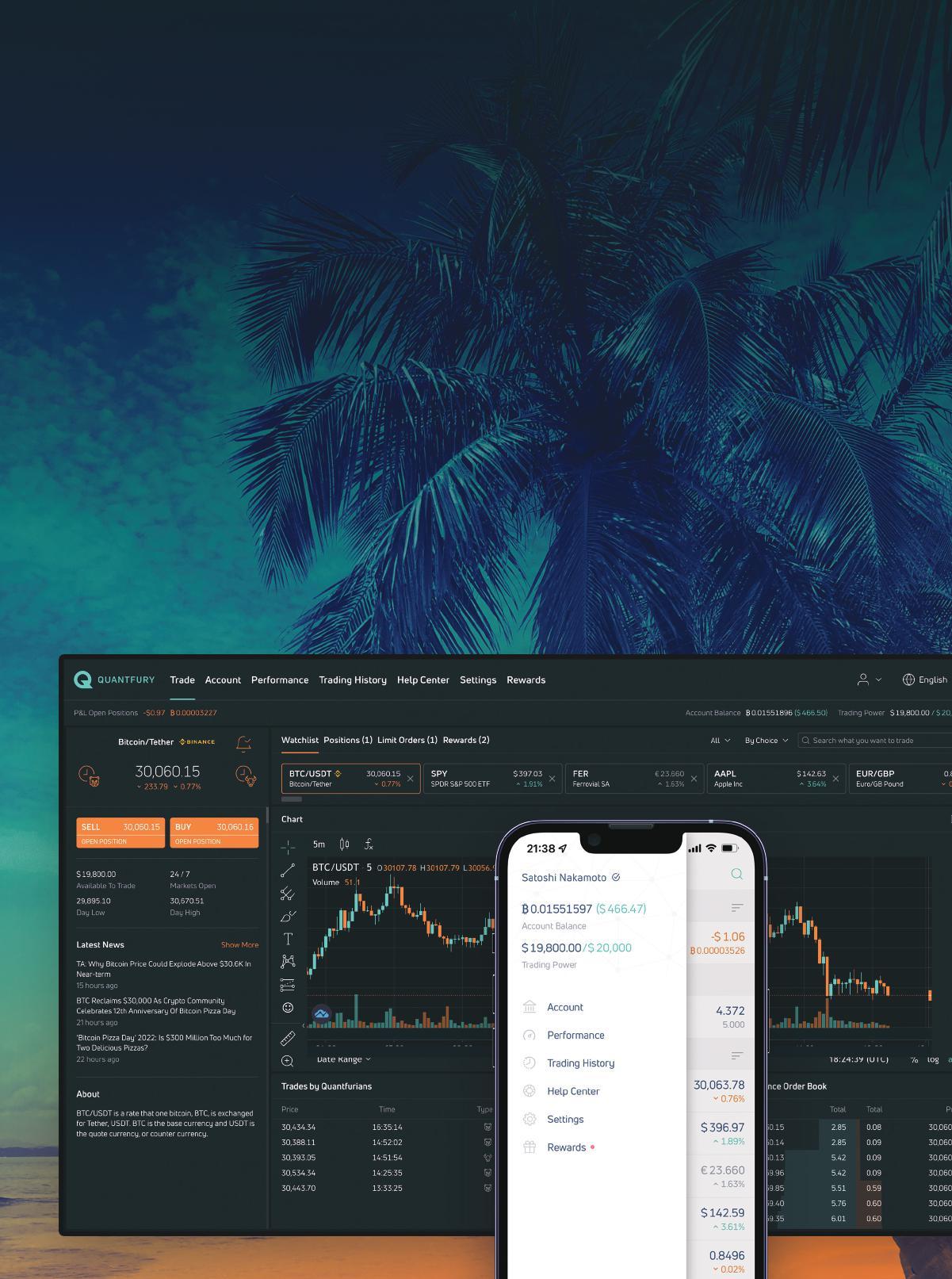
Over the past 10 years, the number of licensed captive insurance entities registered in The Bahamas has grown –at first very rapidly and, in the last five years, steadily. As a result, growth has occurred in overall net premium volume along with the expansion in the number of parent company regions throughout the US and Europe.
The growth in The Bahamas’ captive market is largely attributed to small-to-medium sized entities (SMEs) seeking to set up their own segregated accounts. This option has proven to be cost-effective for those SMEs, especially since they can and do outsource administrative and operational oversight to locally-registered insurance managers, financial and corporate service providers and other financial service professionals such as lawyers and accountants.
SMEs across varying industries are all interested in the Bahamian captive market. Their aim is to minimise losses that they might incur during the course of their operations.

 by Carl Culmer
by Carl Culmer
Such an entity might be either a stand-alone company, i.e. a single-parent company, or a registered segregated account in an already licensed segregated account (captive insurance) company. A stand-alone entity is incorporated, while a segregated account (or cell captive) forms part of a registered Segregated Accounts Company. A typical company considers the size, nature and complexity of its operations before applying for the appropriate category of licence that best fits its strategy and commercial interests.
Presently, all captives are licensed as ‘external insurers’ in accordance with the External Insurance Act 2009. The Bahamas continues to register captives that insure risk associated with various industries such as medical and healthcare administration, retail and wholesale distribution, agriculture, construction and real estate. The lines of business extended as coverage within these structures include workers’ compensation benefits, cyberrisk, directors’ and officers’ (D+O) insurance and excess liability.
After a spate of growth earlier in the last decade, the aggregate number of segregated accounts continues to demonstrate gradual growth over the past three years.
The chart below outlines the number of external insurers identified as captives for the period 2019 – 2021.
The present legislation has certainly helped the insurance sector to grow to a satisfactory degree and the commission is determined to keep the applicable law competitive with the laws of other jurisdictions. It also remains intent on keeping its regulatory and supervisory regime effective and in line with the high standards of the International Association of Insurance Supervisors and the recommendations submitted by the Financial Action Task Force.
In 2021, as part of its strategic plan to amalgamate legislation, the commission began a review of the jurisdiction’s two principal insurance laws – the Insurance Act, 2005 and the External Insurance Act, 2009. The purpose of the review, which is still in progress, is to streamline regulatory and supervisory requirements and to enhance legislation to help insurance structures. The commission has collaborated with industry associations, professionals and the general public as part of its consultative effort. Individuals and companies have been keen to use these discussions to find out more about the captive market with a view to establishing captives of their own to support their medium-to-long-term risk-management strategies.
Despite the lingering effects of the global pandemic of 2020, international companies are still expressing interest about the establishment of captives in The Bahamas. The insurance industry continues to demonstrate its financial resilience to economic shocks. The effective use of captives can also serve as an additional absorber for companies that have suffered from such global shocks.
The Bahamas’ participation in the captive insurance industry dates back to the 1960s. Given the islands’ rich history in this niche industry, the Government has taken steps in recent years to ensure that this business actively contributes to the overall growth of the financial services sector. Local insurance managers and other financial intermediaries are
still finding ways to promote both their own services and the jurisdiction as a whole in the captive market. The Bahamas Financial Services Board (BFSB) has helped them do so, highlighting the jurisdiction as a competent and competitive international financial centre that promotes synergies between the industries of the financial services sector. The commission, along with the BFSB and the country’s captive insurance professionals, participates actively in the captive insurance industry’s events and training seminars. This ensures that all stakeholders remain well-acquainted with the industry’s trending topics, challenges and opportunities. The commission’s partnership with the BFSB has extended the promotional outreach of the jurisdiction as a captive domicile and has provided a forum in which meaningful discussions take place.
The BFSB, along with the commission, will continue to work with the Government of The Bahamas to target the captive insurance and reinsurance industry as an area of economic interest. Companies that want to base their insurance business in The Bahamas should note the key regulatory requirements for approval.
The external (captive) insurer application process includes the following.
1. A scheduled pre-application meeting to discuss the proposed business plan.
2. Submission of a completed application which includes, but is not limited to, the following:
a. a detailed business plan;
b. an actuarial review or feasibility study;
c. projected financial statements for three years (inclusive of balance sheet, income statement and solvency calculations);
d. sample policies to be marketed and sold by the applicant;
e. details of the reinsurance programme (where applicable); and
f. ‘due diligence’ documents for proposed shareholders, directors and senior officers.
3. Review of the application and consideration for approval by the commission’s Board of Commissioner’s.
This is generally a two-stage process. Subject to satisfactory review of the application, the commission initially grants the applicant approval in principle with conditions. Applicants are then given 30-60 days to satisfy these conditions of approval.
The insurance industry continues to demonstrate its financial resilience to economic shocks. Once the conditions of approval are met, the ICB issues a certificate of licence to the applicant.
Every captive insurance company in The Bahamas must, among other things, satisfy the following requirements.
• A minimum of two directors.
• The appointment of a resident representative in the Bahamas at whose office books and records must be maintained.
• A minimum of US$100,000 in share capital (additional regulatory capital may be required depending on the nature, size, and scope of the proposed entity).
• Application fee of US$100 (stand-alone) and US $250 (per segregated account).
• Annual (stand-alone) renewal fee of US$2,500.
Information about captive insurance in The Bahamas can be found on our website at www.icb. gov.bs. Interested persons may also contact info@ icb.gov.bs.
Carl R. Culmer Jr. Manager of Policies & Practices Insurance Commission of The Bahamas.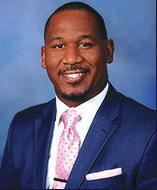
Carl R. Culmer Jr. is the Manager of Policies and Practices at the Insurance Commission of The Bahamas. His responsibilities include the development of supervisory guidelines, research and policy advisory, data management, and strategic communication. A financial services professional for over 15 years, Carl has had regulatory oversight for domestic and international insurers, banks, and trust companies.
To further his career in financial services, Carl has completed certifications in Public Risk Management, Securities Investments (Series 7), and Arbitration (CIArb). He has also achieved the Associate of Captive Insurance (ACI) and Certified Anti-Money Laundering Specialists (CAMS) designations. Carl is currently scheduled to complete, by Fall 2023, post graduate studies in Financial Services Law at Queen Mary, University of London.
Carl is a recipient of the 2019 Bahamas ‘40 under 40 Award’ and is a member of Toastmasters International.
The Financial Action Task Force (FATF) has recognized that the real estate sector is attractive for potential misuse by money launderers and terrorist financiers. Real estate is often chosen globally as a vehicle for criminals to launder ill-gotten gains because property offers a path to legitimacy and will appreciate over time. This allows criminals to enjoy their property and eventually the proceeds of sale.
The Bahamas’ political and financial stability, international accessibility and tropical climate make it one of the most sought-after real estate investment destinations in the world. The real estate market offers Bahamians and foreigners opportunities for medium to long-term price appreciation and rental yields. The market attracts local citizens as well as foreigners in search of primary and secondary homes.
Luxury properties including upscale condominiums, tourist resorts and second home developments have long drawn wealthy foreign investors. The large sums associated with this market, along with the enhanced lifestyle make Bahamian luxury property a potentially attractive option for laundering the proceeds of crime. For this reason, the high-end real estate market continues to present a substantial potential ML/TF/PF risk to the economy.
In order to maintain the positive image of The Bahamas as an attractive choice for foreign investors, real estate brokers and land developers must be in compliance with international AML/CFT/CPF obligations and discourage attempts by money launderers or terrorists to abuse the sector.
The Bahamas has implemented international standards through AML/CFT/CPF legislation in 2018 and 2019. Under the guidance and supervision of the Group of Financial Service Regulators (GFSRs), strict controls have been imposed at all levels of the real estate transaction process.
In November 2021, the Caribbean Financial Action Task Force (CFATF) assessed The Bahamas Technical Compliance as compliant or largely compliant with 38 out of 40 of the FATF recommendations, placing The Bahamas in the top category of Technical Compliance world rankings.
The Compliance Commission of The Bahamas is an Independent Statutory Authority established under section 39 of the Financial Transactions Reporting Act, 2000 (FTRA, 2000) and continues in existence under section 31 of the Financial Transactions Reporting Act, 2018 (FTRA, 2018). The Commission supervises Designated Non-Financial Businesses & Professions (DNFBPs) including Real Estate Brokers & Land Developers.

The Commission’s mandate is to ensure registrants’ compliance with the provisions of the Bahamas’ AML/CFT/CPF laws and has extensive legal powers to regulate the sectors. The supervisory approach is to assess DNFBPs’ policies, procedures, and controls for identifying and managing ML/TF/PF risk and compliance with AML/CFT/CPF preventive measures. The risk based supervisory framework is aligned with FATF standards for an effective supervisory regime and The Bahamas AML/CFT/CPF legislation including:
• Market entry controls to prevent criminals and their
associates from acquiring an ownership or management position in a registrant.
• Understanding the ML/TF/PF sectorial risks, monitoring to assess compliance with AML/CFT/CPF obligations to mitigate ML/TF/PF risks.
• Assigning effective proportionate sanctions and applying remedial actions.
• Promoting a clear understanding of obligations and ML/ TF/PF risks.
• Raising the level of compliance with AML/CFT/CPF obligations.
Registration with the CC is a requirement in law, with penalties for not registering, whenever a firm is conducting the specified services, aligned with FATF standards, in the FTRA 2018 section 4.
The services under AML/CFT/CPF supervision include:



• Real estate brokers acting in the buying or selling of real estate and with respect to both vendors and purchasers.
• Land Developers engaged in the sale, partition or condominium of any part, parcel, lot or condominium unit of any larger tract or lot of land or any development of land involving the building of units sharing walls, common areas and utilities.
The sector is relatively new to AML/CFT/CPF supervision, as the FTRA 2018 strengthen the AML/CFT/CPF obligations and widen the prescribed financial services for the sector. Prior to the introduction of the FTRA 2018, real estate brokers were only captured in the AML/CFT/CPF regime if they received funds. The CC has implemented an ongoing training program to increase the awareness of AML obligations and continue to work with The Bahamas Real Estate Association (BREA) to ensure that The Bahamas remains an attractive location for real estate investment and adheres to the AML/CFT/CPF obligations for the sector.
Registrants in the real estate sector must comply with the AML/CFT/CPF requirements for the DNFBP sector, the associated AML/CFT/CPF legislation in The Bahamas and applicable guidelines. These include implementing a compliance program that encompasses key compliance pillars as shown below. The identification of the beneficial owner is a requirement by law in The Bahamas. The Register of Beneficial Ownership Act 2018 provides for the establishment of a secure search system, known as BOSS, for registered agents to maintain information on beneficial ownership of a legal entity for which it has responsibility.
Real Estate brokers & Land Developers are expected to understand the ML/TF/PF risk its business is exposed to, mitigate the risks, know the ML/TF/PF red flags and fulfill the obligations under the AML/CFT/CPF laws.
The impact of the measures to upgrade the AML laws and guidelines is shown in the significant increase in the number of real estate brokers and land developers registered with the CC.
The role of real estate brokers is to represent the vendor via a listing agreement and arrange property viewings. Real estate brokers receive commissions on transactions, but the money flow involves lawyers and banks. However, their relationship with both the buyers and sellers of properties can provide crucial information to identify suspicious transactions and are required to conduct CDD checks on both the buyers and sellers of property and identify the beneficial owner of properties and their source of funds.
In a research study conducted by the Central Bank of The Bahamas (CBOB) April 2019, domestic bank deposit cash inflows from 17 potentially problematic AML sectors were
examined for the 2018 calendar year. The study found that deposits received from real estate brokers and agents, attorneys and legal firms, and land and real estate developers respectively accounted for a substantial proportion of potentially worrisome deposits. The real estate industry was found to be large enough to constitute a potential threat, arising from BSD (Bahamian dollar) and non-BSD flows, but not from currency-based money laundering. Nearly the entirety of Bahamian real estate deposit inflows is already in the banking system. Non-BSD accounts are substantially associated with real estate transactions, most of which stem from foreigners purchasing Bahamian property. There has been no evidence for many years that foreign real estate purchases are a major AML conduit.
The CC issued a research paper in May 2022 on “AML/CFT/CPF controls in the Real Estate Sector” and identifies the comprehensive controls present throughout the real estate transaction process, steps involved in real estate transactions and explain the AML/CFT/CPF controls in place to mitigate ML/TF/PF risks for Bahamians and NonBahamians. Based on this study the CC determined that although luxury real estate requires constant monitoring as a potential money laundering risk, The Bahamas currently has satisfactory controls in place to mitigate ML and other financial crime risks flowing through luxury real estate, and particularly cross border real estate, making it unlikely that The Bahamas is a real estate-based money laundering center.

The real estate sector was valued at $1.74 billion in 2021, representing approximately 17% of The Bahamas’ GDP, a 5.4% increase from 2020 ($1.65 billion). Since 2017 the real estate sector has been a steady contributor to GDP and was also the largest industry contributor for 2021, followed by wholesale/retail trade/ motor vehicle repairs and financial/insurance industries. Industries such as construction remained a significant contributor to GDP and stood at roughly $703 million in 2021.
The CC has implemented RegTech solutions to enhance supervisory functions including digitalizing most of the examinations procedures and launched an online registration portal in 2021 that allows registrants to register and update information.
The goal is to ensure that the real estate sector maintains compliance with the AML/CFT/CPF international standards and protect the financial system from the threats of ML/TF/PF.
2We note that offshore property owners are generally entitled to vacation in or live in their Bahamian properties, but this does not trigger Bahamian citizenship by investment
3The CC falls under The Ministry of Finance
4FTRA, 2018 s 4
5If a property is being purchased in the name of a corporate entity that is incorporated under the IBC Act, it must also have a registered agent in The Bahamas.
6Guidance on co-brokering is in the CDD guidance, CC website
7Contributions from CBOB-posted on the CC website https://ccb.finance.gov.bs
Andrew Strachan has over 25 years of experience in international private banking and compliance at Clariden Leu Nassau Branch and Credit Suisse Bahamas. Andrew has held senior positions – Senior Vice President, Portfolio Manager, Relationship Manager and Deputy to the Managing Director at Clariden Leu, Vice President Portfolio Manager at Credit Suisse and has studied and trained in the United States, England, Canada and Switzerland. Mr. Strachan has also completed Assessor training, by the Caribbean Financial Action Task Force (CFATF) and Financial Action Task Force (FATF) standards training.Andrew is presently the Inspector of the Compliance Commission of The Bahamas and designated certain duties of The Competent Authority with responsibility for the operation of the exchange of information for the Foreign Accounts Tax Compliance Act, 2015 (FATCA) purposes, Country by Country Reporting (CbC) and Common Reporting Standard (CRS).
Mr. Strachan has served on a number of public and private boards, financial organizations, and advisory committees in The Bahamas, including the Bahamas Financial Services Board and the Investment Committee of The National Insurance. Mr. Strachan is a past president of the CFA Society The Bahamas and currently Chairman of the Bahamas International Securities Exchange (BISX)
Andrew Strachan Inspector of the Compliance Commission of The Bahamas

 By Chris Illing
By Chris Illing
The Russian president has brought decades of peace in Europe to an end. His war in Ukraine, combined with the Coronavirus pandemic which began today’s cycle of high inflation in 2020, is causing a great deal of uncertainty in the financial markets. Investors in commodities, however, have done well.
2022 has been a challenging year for the international investor. During the height of the pandemic, the volume of mobile trading by retail traders grew enormously because people had plenty of surplus disposable income, more spare time in which to trade from the comfort of their homes and increasingly reliable internet connectivity.
Nowadays, anyone can easily trade in securities on the Internet. Online brokers make this possible, offering investors access to global trading venues through software and FinTech.


If someone wants to sit at home and invest on his computer or smartphone, he should compare the offers of the online brokers with each other. Although they offer their services at considerably lower prices than direct banks, i.e. banks with no branch networks, they are not completely free of charge. Sometimes the feefree depots and trades are offset by return-reducing third-party flat rates, negative interest, exchange fees and trading commissions.
In addition to the fees, the investor should pay attention to the asset classes in which he wants to








invest when choosing his online broker. Not every service offers trading in crypto-currencies or contractsfor-difference, for example. It is also worth comparing the services with each other, because not every online broker has a multi-language-speaking customer service or can be reached by phone. The user interface should be clearly designed and easy to use. An online broker that offers a free demo-account for testing is recommended.
It is important for every investor in the stock market to have a balanced portfolio. Anyone who invests in stock listed all over the world and who relies on the large, well-known global stock indices is not going to feel the effects of volatility in the markets as badly as, for example, an investor who depends on Russian companies. One should not look at the next few weeks here, but at the next few years.
The inflation rate in the USA was recently 8.5% for the 12 months ending in March 2022. Crypto-assets are the most high-profile instruments that investors are using to protect their portfolios against inflation. They are, however, only one type of asset. Investors can look to real assets as well. Gold, for example, should continue to do well during the rest of 2022. The price of this precious metal rises when inflation is high but may dip if interest rates rise. The real interest rates, i.e. the interest rates after inflation, are therefore decisive and these are likely to remain negative globally. Even if the US Federal Reserve were to raise interest rates to 2% by the end of next year, which would be extremely high, real interest rates would still be well into the red given inflation of 4%. This should elevate the Gold price.
In a year in which stocks have struggled and bonds have done worse, commodities are an isolated bright spot. It is important to note that investors in commodities have been able to gain this year from increases in the prices
of raw materials. Investors obviously know that energy prices have surged this year, with the war between Russia and Ukraine interrupting the flow of oil and gas. The conflict has had its repercussions in many other commodity markets as well, since Russia and Ukraine export a whole host of commodities including wheat, corn nickel and palladium.
Along with exchange-traded products that target single commodities, several multi-commodity exchangetraded funds found themselves to be very popular.
Exchange-traded funds are popular with our investors as trading instruments. An ETF is a type of pooled investment security that operates much like a mutual fund. The fund tracks a particular index, sector, commodity or other asset but, unlike a mutual funds, an ETF can be purchased or sold on our trading platforms in the same way that a regular stock can.
QQQQ trades on the Nasdaq exchange and is one of the more popular ETFs. This security offers broad exposure to the tech sector by tracking the Nasdaq 100 Index, which consists of the 100 largest and most activelytraded non-financial stocks on the Nasdaq.
Alternatively, the Direxion Daily S&P Biotech Bear (LABD) 3X Shares seek daily investment results, before fees and expenses of 300% of the performance of the S&P Biotechnology Select Industry Index.
The first US Bitcoin-linked ETF is the ProShares Bitcoin Strategy ETF (BITO.US), which offers investors a familiar way to gain exposure to bitcoin
returns but with the liquidity and transparency of an ETF. An investor can expose his portfolio to Bitcoin easily with this. When BITO was launched back in October last year, it became the fastest ETF to reach $1 billion dollars in assets under management.
If a retail investor trades in an ETF, especially a cryptorelated one, he will gain some advantages if he does so with the help of a regulated broker. In addition to various problems that beset the spot market itself, the unassisted investor faces some complex transactions if he wants to invest in bitcoin directly, even through an exchange. If he looks at the disclosures made by one of the exchanges that offers bitcoin, he might see a text in the small print that says “you could lose all your money in a fork.” He must then spend some time on the Internet to find out what a
fork is on the blockchain. Many people are comfortable with this process, but there are certainly some who are not amenable to the challenges of dealing in a new asset like that in its raw form.
Then, of course, there are the issues that surround custody and wallets. Once the investor is in an exchange, he has only just embarked on some tough decision-making. He must then determine whether the exchange ought to hold his wallet, whether he ought to hold his own wallet, whether he ought to hold his wallet and keep his code on a memory stick, or on a piece of paper in a vault, and so on. Many small investors are looking for simpler ways to take part in the crypto-market and brokers offer them one way of doing this.
Chris Illing was born in Germany and moved to the Bahamas in the early nineties. He finished his education in Cologne and has a BA in Business. After a successful career in the hospitality industry, he decided to change the industry and joined ActivTrades Corp. in 2019. Chris is the Chief Commercial Officer at ActivTrades Corp, with focus on business development and contributes a weekly financial column in the local newspaper. Chris is also the serving honorary consul for Germany in the Bahamas. His free time Chris spends with his family and enjoys the Bahamian aquatic life.
 Chris Illing Chief Commercial Officer at ActivTrades Corp
Chris Illing Chief Commercial Officer at ActivTrades Corp
As another busy year closes, it is worth reflecting on the times gone by and what may the tax future hold for us private client advisors. Below I share the reflections of a self-assessed Mexican tax geek on how the world of offshore investment has looked, and may look, for those involved with assisting Mexican taxpayers with their international investments.
First, news from the Mexican homefront. Unfortunately, uncertainty on the political
scenario has continued to grow while the strength of the rule of law has continued to erode. A semi single-party political system has been re-installed de facto in the country, where the capricious will of the head of the state many time becomes the law of the land. The current administration faces little to no challenges to its policies and decisions from the legislative and judicial powers, which in past decades had regularly acted as true checks and balances to executive power. Erratic, inconsistent and even sometimes condescending votes and decisions by those powers that seem more aligned with acquiescing to the will of the current head of state than upholding the Mexican constitutional and legal framework, are

As another busy year closes, it is worth reflecting on the times gone by and what may the tax future hold for us private client advisors. Below I share the reflections of a self-assessed Mexican tax geek on how the world of offshore investment has looked, and may look, for those involved with assisting Mexican taxpayers with their international investments.
First, news from the Mexican homefront. Unfortunately, uncertainty on the political scenario has continued to grow while the strength of the rule of law has continued to erode. A semi single-party political system has been re-installed de facto in the country, where the capricious will of the head of the state many time becomes the law of the land. The current administration faces little to no challenges to its policies and decisions from the legislative and judicial powers, which in past decades had regularly acted as true checks and balances to executive power. Erratic, inconsistent and even sometimes condescending votes and decisions by those powers that seem more aligned with acquiescing to the will of the current head of state than upholding the Mexican constitutional and legal framework, are an attestation of the very sensible situation that currently exists in the country.
In the world of private client advisory, where asset protection has always lied at top of the food chain of priorities, these circumstances have nothing but exacerbated the demand for compliant & secure international estate planning structures. The mix of eroding rule of law and dim prospects for the Mexican economy have continued to generate an exodus of capital from bricks & mortar investments in the country into more mobile, more flexible, more international and more creditor-protected asset types. Notwithstanding, enhanced supervisory and audit capabilities from the tax authorities, concurrent with enlarged exchange of information between countries, require careful planning and analysis is put into the design and implementation of these structures, at the peril of the cure being worse than the disease.
Second, on the purely technical side, the above situations have created a number of remarkable trends and identified a set of unresolved tax issues for international estate planning structures. There are certainly many other trends and issues out there and by no means is the list herein presented thought of as exhaustive; its mere intention is to showcase a couple that, in the author´s view, are some of the more pressing and recurrent.
On the trend side, I believe there has been a clear transition from structures and vehicles which main objective was to achieve tax deferral in respect to the earnings and profits generated within them, into structures that focus on real-time income accrual and reporting based on the application of preferential tax rates, control of the timing of realization of accrued income, containment of foreign exchange currency gains and simplified & transparent tax filing. The use of structures such as the split-trust, the partially revocable trust, the unit trust (with unilateral forward contracts and call options) and signature funds, has significantly declined. This decline is largely due to the major tax reform that took place in Mexico in 2020. Pursuant to this reform the tax regime applicable to income generated through offshore vehicles was thoroughly overhauled, particularly with (i) the introduction of a bespoke regime for transparent vehicles and with (ii) the elimination/delimitation of the lack-ofcontrol exception that previously allowed tax deferral of gains derived through vehicles that were not under the control of the Mexican tax residents that participated in the same.
The structures listed above relied, in one way or another, on the fact that a third party controlled the timing of income distributions and/or that contractually said taxpayers had no vested right in the underlying income. For the risk-adverse client, the trend has been to migrate its assets into structures in which there is no tax deferral per se, but deferral of income recognition can be achieved through careful construction of the portfolio and careful timing on the sale and acquisition of financial instruments, i.e., deferral is now achieved through financial planning
in lieu of through tax planning. Likewise, the trend for Mexican clients has been to now use structures that, because they are transparent, allow the application of the 10% preferential capital gains rate, avoid the sting of the 10% dividend tax, and/or protect from the volatility of foreign currency exchange gain. It seems that the flavor-ofthe-month structure is now the so-called “Hybrid Triangle Structure” that contemplates a U.S. foreign grantor trust at its top, with two separate subsidiary vehicles composed of a transparent limited partnership on the one side and a nontransparent corporation on the other side. Below a brief description of this popular structure.
The U.S. trust is treated as a fully disregarded entity in all relevant jurisdictions, particularly in Mexico, the U.S. and the jurisdictions in which the other vehicles are incorporated or the relevant bank accounts opened. On the one side, the transparent limited partnership, which generally is not considered a tax resident in its country of incorporation or management, and likewise is not given a separate legal personality under local law, holds stocks and private equity positions. This vehicle also makes a check-the-box-election in the U.S. to be treated as a foreign corporation to secure U.S. estate tax protection. Bahamian Exempted Limited Partnerships and Limited Partnerships are frequently used to fulfill this role. On the other side, the non-transparent corporation, which is generally considered a tax resident in its country of incorporation (although it is generally not taxed on any offshore & financial income), and which does have its separate legal personality, holds cash, money market and debt instruments. Bahamian International Business Companies and Limited Liability Companies are often used for this role.
The Trust generally benefits from a statute that provides a high level of protection against private and public creditors and it is generally used as the vehicle that contains the rules for succession planning, guidelines for determining the amount and timing of income and capital distributions, and the corporate & family governance provisions. The partnership is generally used as a reverse hybrid, that
is transparent for all non-U.S. jurisdictions, including Mexico, but non-transparent for the U.S. This allows for the application of home jurisdiction preferential rates while avoiding exposure from U.S. estate tax and income tax filing obligations for the ultimate individual beneficiaries (because the partnership has elected to be treated as a foreign corporation under U.S. rules, it is this vehicle -and not its members- who has to file corresponding U.S. tax returns). The non-transparent company shields the Mexican taxpayers from having to immediately recognize income from foreign currency exchange fluctuations, which they only need to recognize in the event that they take out the resources from said company.
The partnership holds stock, including stock that is listed in the international section of the Mexican stock market, and private equity positions. Because both the limited partnership and the trust are fully transparent for Mexican tax purposes, the Mexican tax resident beneficiaries recognize income derived from the disposition of such assets as if said residents had sold the assets themselves. This transparent entity allows said beneficiaries to be taxed with a single level of tax because (i) the dividend tax does not apply to distributions coming out of vehicles (i.e. the limited partnership and the trust) as they are not companies (the 10% dividend tax applies only to distributions from companies) and (ii) to apply the 10% preferential capital gains rate or the 35% ordinary rate. In this case, tax deferral & efficiency may be achieved by careful timing of the sale of stock that triggers income accrual and loss recognition. The limited partnership only holds de minimis and temporary amounts of money and fixed income instruments, as it does not provide protection from foreign currency exchange gains.
On the contrary, the non-transparent corporation holds cash, money market and debt instruments. This entity generally does not hold equity positions. This vehicle is not subject to the Mexican rules for transparent vehicles as it has its own legal personality and, although it does not pay income tax in its country of incorporation, it is generally considered a
tax resident thereof, thus it is not considered tax transparent for Mexican tax purposes. Consequently, this vehicle should be subject to the long-standing Controlled Foreign Corporation rules, pursuant to which a Mexican tax resident participating in a foreign corporation needs to recognize the income generated by such entity on an immediate basis, but the earnings and profits are to be determined in the currency in which said entity operates. In the structure at comment, even though there is no tax deferral, there is a significant benefit in protection from foreign currency exchange gains because of the law feature that allows the vehicle to determine its taxable income using a defined foreign currency, typically the U.S. dollar. This allows the Mexican tax resident to indirectly hold conservative assets, like U.S. treasury bonds, without having to worry about unexpected gains from the ups-and-downs of the exchange rate of its home country.
Now, as to the risks and unresolved issues of the Hybrid Triangle Structure… Even though the benefits of this popular structure are palpable, there are areas of uncertainty that need to be carefully analyzed. Below are the ones that haunt me the most in my sleepless nights.
One, even though the new Mexican transparent vehicle regime clearly indicates that income generated through these vehicles will be treated as if derived by the Mexican beneficiaries that participate in the same (i.e., full transparency), it is mute as to the tax treatment of capital contributions and distributions into and out of the same. The logical, and consistent, response should be that the transfer of assets by a Mexican beneficiary into and out of the vehicle should not trigger a taxable transfer as said beneficiary will continue to be immediately and directly taxed on any gains derived through the vehicle. However, there is no express rule on the topic and there is no guarantee that the tax authorities could take an opposite position, that is, that the transfer of assets into and out of a transparent vehicle is a taxable transaction where the transferor needs to recognize as income the difference between the fair market value of the asset transferred and its cost basis. The relevant
taxpayer, and their trustworthy advisors, should analyze this situation and quantify the potential income that they could be forced to recognize in the capital contributions to transparent vehicles.
Two, there is no transitory rule for the treatment of earnings and profits generated by a transparent vehicle prior to the entry of the Mexican transparent vehicle tax regime or as to their distribution post 2020. This leaves Mexican tax residents who had legacy structures with a high level of uncertainty as to how to treat income generated prior to the 2020 tax reform and how to treat distributions of said income after the reform. Potential pitfalls include whether to consider that earnings from past years that benefitted from legitimate tax deferral under the prior regime still enjoy that advantage or, on the contrary, now need to be retroactively or currently recognized, regardless of whether the same are distributed or not. Another area of uncertainty is determining whether on a distribution made after 2020 from a transparent entity, the pre-2020 legacy capital and profits are first distributed or, on the contrary, the post-2020 profits are first distributed and only after those earnings have been exhausted should the taxpayer consider that pre-2020 profits are distributed. This determination can substantially affect the tax burden applicable on distributions, as pre-2020 earnings generally have not been subject to any tax and thus their distribution would trigger tax charges, while post-2020 earnings have generally already been taxed at inception and their subsequent distribution is tax neutral. In the absence of clear guidelines, the taxpayer would have a natural tendency to consider that pre-2020 earnings are the last ones to be distributed so it can continue to maximize their tax deferral. Taxpayers will need to make this determination on the tax return to be filed for the year in which they received a distribution from the transparent vehicle.
Three, even though Mexican tax law makes reference to, and defines the applicable tax treatment based on, the concept of legal personality, it does not provide a definition of said concept nor any guidelines to the same. This potentially leaves the determination of whether a vehicle has or not legal
personality to the rules, if any, set forth in the jurisdiction of incorporation of the referred vehicle. In our experience, the definition of legal personality is, at best, very different from one jurisdiction to another or, in the worst cases, there is simply no definition at all. Because for vehicles that are not per se transparent, the applicability to them of the Mexican tax transparent regime hinges on whether said vehicles have legal personality of not, this issue is of the essence. Although not a perfect or bullet-proof solution, the minimum that should be done by the relevant taxpayer, or its trustworthy advisors, is to secure a legal opinion from local counsel as to whether a vehicle has legal personality or not.
For those assisting Mexican clients, it is important to recognize that, as Bob Dylan said, “The Times They Are A-Changin”. Many old structures potentially no longer
serve the best interests of clients and, in fact, may be putting them in risky situations of non-compliance. On the other side, new structures may still provide significant benefits, including modified tax planning and compliance, but an aura of uncertainty still lingers around many aspects of the same. As advisors, we could simply say “Caveat Emptor” and steer away from advising on any new estate planning structures because the tax rules have become more stringent, but the truth of the matter is that such structures continue to be in vogue and high demand and we, as advisors, need to be aware of all the relevant issues to be able to assist our clients through these complicated waters.
Abel Francisco Mejía Cosenza Partner, Sanchez DevannyAbel specializes in international tax planning both for companies and individuals. Consulting for individuals includes advice for high net worth and ultra high networth families regarding issues such as pre migration tax planning to other countries design of international patrimonial structures that incorporate corporate family governance protocols and orderly inheritance transmission as well as as planning regarding inheritance taxes in different jurisdictions. The advice for international corporate groups includes support in the establishment and maintenance of their Mexican operations as well as in processes of acquisition and sale of business units in Mexico. Similarly Abel advises Mexican business groups with investments and cross border operations including the establishment of real estate investment funds private equity and the establishment of operating subsidiaries abroad. Abel has more than 20 years of experience in legal practice He is licensed to practice in Mexico and the United States ( where he practiced for more than eight years in one of the most prestigious law firms in California. Abel’s native language is Spanish and he is fluent in French and English.


































































 by Edward Hall
by Edward Hall
Practitioners will know that it is good practice for private clients, their families, and advisors to regularly review private clients’ affairs and structures. The pandemic brought this exercise into sharper focus, with private individuals and trustees reflecting on current structures. As a result, practitioners saw an increase in instructions to review wealth preservation measures. Below are some of the issues which we have explored with clients over the last two years during the pandemic.
We saw an increase in private individuals and their families reviewing their testamentary arrangements. This included updating existing testamentary papers (to reflect any changes to the circumstances of the family and their assets) and putting new testamentary papers in place. It is important to consider whether all members of the family have testamentary papers in place, as it is often the case that the next generation have never discussed their own testamentary arrangements.
The same applied to Lasting Powers of Attorney (“LPAs”). We considered whether all family members had LPAs in place and existing LPAs were reviewed and, if necessary, updated. The importance of this exercise was exacerbated by the increased need to have attorneys in place in response to Covid complications and significant delays to register LPAs at the Office of Public Guardian. These delays continue to remain an issue, with the Office of Public Guardian reporting that it will take up to 20 weeks for it to register an LPA (provided that there are no mistakes in the application).

Private clients also embarked on wider estate planning, and we saw a wish to accelerate wealth passing to the next generation. The pandemic has crystalised families’ estate planning conversations and wealth succession plans have been brought forward.




















In more certain times, there are many reasons why trustees may wish to review their trust structures, such as a change in family circumstances, or a shift in the tax situation affecting the trust. During the pandemic, these reasons were accentuated and additional reasons directly relevant to the pandemic came to the forefront. In response to this, we saw trustees reviewing their structures.

Directly relevant to the pandemic was a review of incapacity provisions, with an international focus on the potential implications of Covid complications and concerns about health generally. We considered whether trust deeds or Articles of Association had provisions relating to the incapacity of trustees and/or directors and, if so, whether those provisions worked in practice.
Where there was a family business, we advised the trustees to conduct a review of the directors. It is critical to ensure that the right people are appointed as directors, and this is even more important during an economic downtown. Like the review of trust incapacity provisions (see above), we also considered whether the business could continue as normal if there was an unexpected death or incapacity of key personnel running the business.
We advised trustees to review existing Letter of Wishes and considered whether those wishes should be updated to reflect any changes to beneficial interests and circumstances. During this process, we noted that Letter of Wishes were often prepared on the creation of the trust structure but keeping the Letter of Wishes current and updated was often overlooked.
We also advised trustees on their investment powers, duties, and obligations. During economic difficulties and financial pressures, trustees are well advised to give their trust assets a health check. It is good practice to periodically review investment portfolios and arrangements with investment managers.
Generational shift can also prompt change and the need for review. During the pandemic, we noticed an upward trend in trustees reengaging with their beneficiaries and this involved the next generation, sometimes for the first time. Our experience was that beneficiaries welcomed the opportunity to reconnect with their trustees and to develop a relationship that went beyond the usual distribution requests from beneficiaries and the administrative and due diligence requests from trustees!
We also saw an increase in instructions to review structures as a whole and to consider whether they were fit for purpose: did they meet the requirements and circumstances of the family? There has been a move away from overly complex trust structures (which have now become outdated and unworkable) and an upward trend in families simplifying and streamlining their structures.
The accompanying lockdown restrictions of the pandemic meant that some international families found themselves living in countries for longer periods of time than planned or expected. Trustees were advised to check the tax residency of their beneficiaries when making distributions during the pandemic to ensure that unexpected and adverse tax consequences did not occur.
The issues considered above, and the lessons learnt during the pandemic have added to our full range of advice on tax, estate, and trust matters.
Edward Hall Partner, Wiggin Osborne FullerloveWiggin Osborne Fullerlove is a specialist international private client law firm providing bespoke legal services to high net worth clients. We provide advice across the full range of tax, trust, and estate matters and as a small firm we provide that advice with a personal touch.
Edward advises international individuals and families in relation to inbound UK investment and relocating to the UK. Edward also advises trustees, beneficiaries, family offices, and private banks in relation to governance, succession planning, tax and trust law.
Edward works for a variety of clients, and most of his work is cross-border, which often involves complex international treaty and conflict of law issues. As a consequence, Edward often acts as a focal interface point between the legal teams, the clients and the clients’ professional advisers, to provide seamless and proactive communication lines and legal advice.
